*NURSING > QUESTIONS & ANSWERS > VATI Fundamentals Exam_2022/2023 | VATI Fundamentals Exam_Graded A+ (All)
VATI Fundamentals Exam_2022/2023 | VATI Fundamentals Exam_Graded A+
Document Content and Description Below
Pharmacology 1. A provider prescribes phenobarbital for a client who has a seizure disorder. The medication has a long halflife of 4 days. How many times per day should the nurse expect to administer... this medication? A. One B. Two C. Three D. Four 2. A nurse educator is reviewing medication metabolism at an in-service presentation. Which of the following factors should the educator include as a reason to administer lower medication dosages? (Select all that apply.) A. Increased renal excretion B. Increased medication-metabolizing enzymes C. Liver failure D. Peripheral vascular disease E. Concurrent use of medication the same pathway metabolizes 3. A nurse is preparing to administer eye drops to a client. Which of the following actions should the nurse take? (Select all that apply.) A. Have the client lie on one side. B. Ask the client to look up at the ceiling. C. Tell the client to blink when the drops enter the eye. D. Drop the medication into the client's conjunctival sac. E. Instruct the client to close the eye gently after instillation. 4. A nurse is teaching a client about transdermal patches. Which of the following statements should the nurse identify as an indication that the client understands? A. "I will clean the site with an alcohol swab before I apply the patch." B. "I will rotate the application sites weekly." C. "I will apply the patch to an area of skin with no hair." D. "I will place the new patch on the site of the old patch." 5. A nurse reviewing a client's medical record notes a new prescription for verifying the trough level of the client's medication. Which of the following actions should the nurse take? A. Obtain a blood specimen immediately prior to administering the next dose of medication. B. Verify that the client has been taking the medication for 24hr before obtaining a blood specimen. C. Ask the client to provide a urine specimen after the next dose of medication. D. Administer the medication, and obtain a blood specimen 30 min later. 6. A nurse is preparing a client's medications. Which the of following actions should the nurse take in following legal practice guidelines? (Select all that apply.) 1 A. Teach the client about the medication. B. Determine the dosage. C. Monitor for adverse effects. D. Lock compartments for controlled substances. E. Determine the client's insurance status. 7. A nurse is preparing to administer digoxin to a client who states, "I don't want to take that medication. I do not want one more pill." Which of the following responses should the nurse make? A. "Your physician prescribed it for so you really should take it." B. "Well, let's just get it over quickly then." you, C. "Okay, I'll just give you your other medications." D. "Tell me your concerns about taking this medication." 8. A nurse is reviewing a client's prescribed medications. Which of the following situations represents a contraindication to medication administration? A. The client drank grapefruit juice, which could reduce a medication's effectiveness. B. The medication has orthostatic hypotension as an adverse effect. C. A medication is approved for ages 12 and older, and the client is 8 years old. D. An antianxiety medication that has an adverse effect of drowsiness is prescribed as a preoperative sedative. 9. A nurse is assessing a client before administering medications. Which of the following data should the nurse obtain? (Select all that apply.) A. Use of herbal products B. Daily fluid intake C. Ability to swallow D. Previous surgical history E. Allergies 10. A nurse is working with a newly licensed nurse who is administering medications to clients. Which of the following actions should the nurse identify as an indication that the newly hired nurse understands medication error prevention? A. Taking all medications out of the unit-dose wrappers before entering the client's room B. Checking the prescription when a single dose requires administration of multiple tablets C. Administering a medication, then looking up the usual dosage range D. Relying on another nurse to clarify a medication prescription 11. A nurse in a clinic is caring for a group of clients. The nurse should contact the provider about a potential contraindication to a medication for which of the following clients? (Select all that apply.) A. A client at 8 weeks of gestation who asks for an influenza immunization B. A client who takes prednisone and has a possible fungal infection C. A client who has chronic liver disease and is taking hydrocodone / acetaminophen D. A client who has peptic ulcer disease, takes sucralfate, and has started taking OTC aluminum hydroxide [Show More]
Last updated: 1 year ago
Preview 1 out of 48 pages
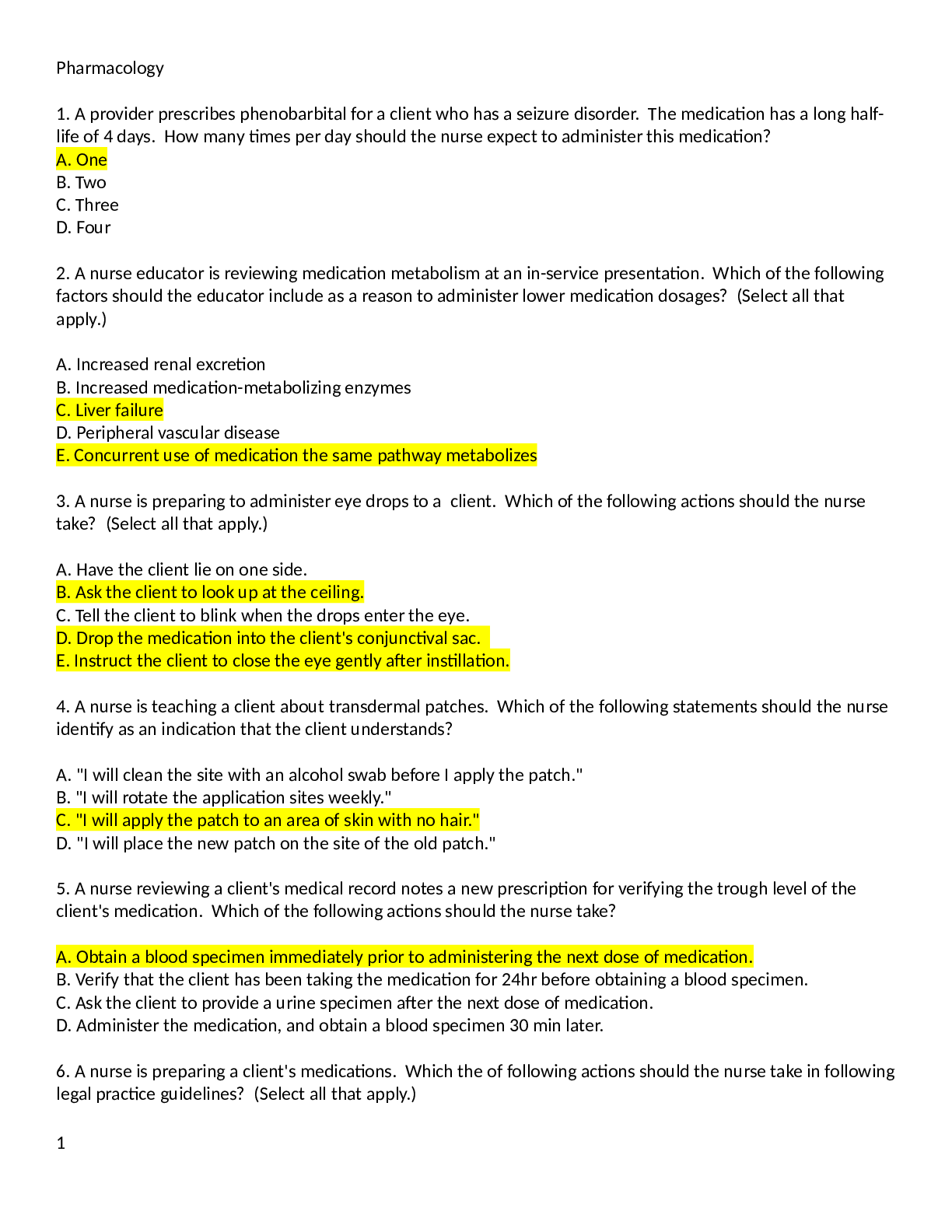
Reviews( 0 )
Document information
Connected school, study & course
About the document
Uploaded On
Nov 08, 2022
Number of pages
48
Written in
Additional information
This document has been written for:
Uploaded
Nov 08, 2022
Downloads
0
Views
95

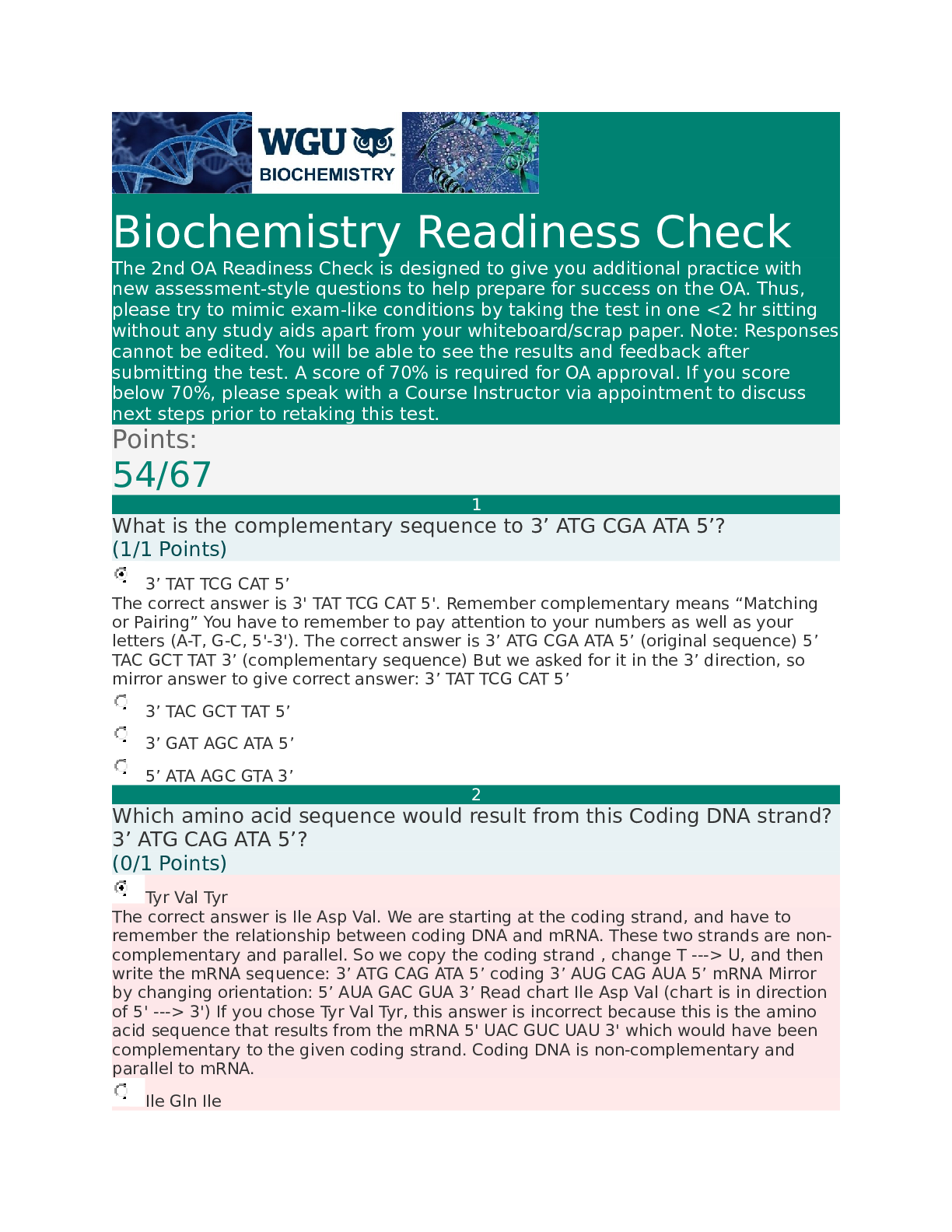
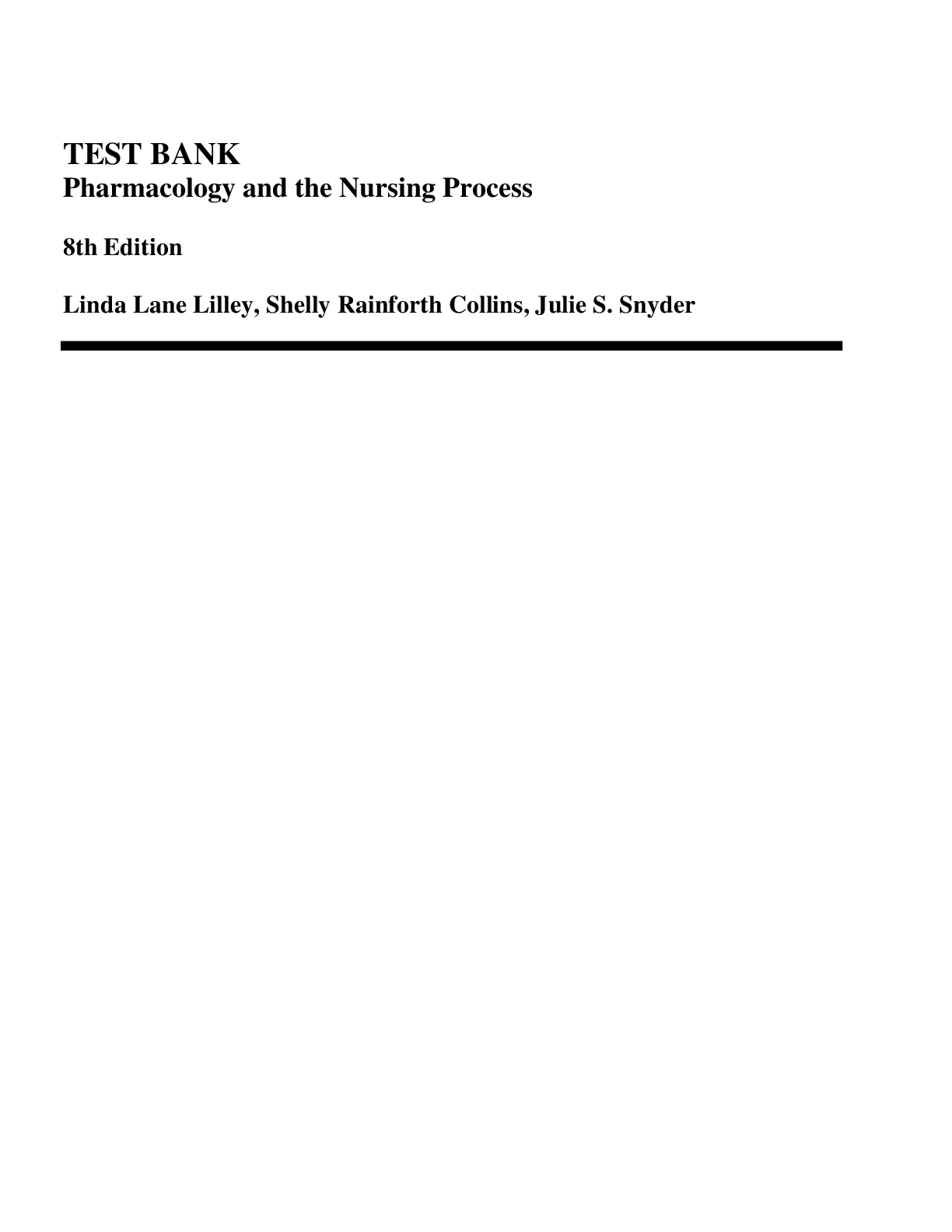
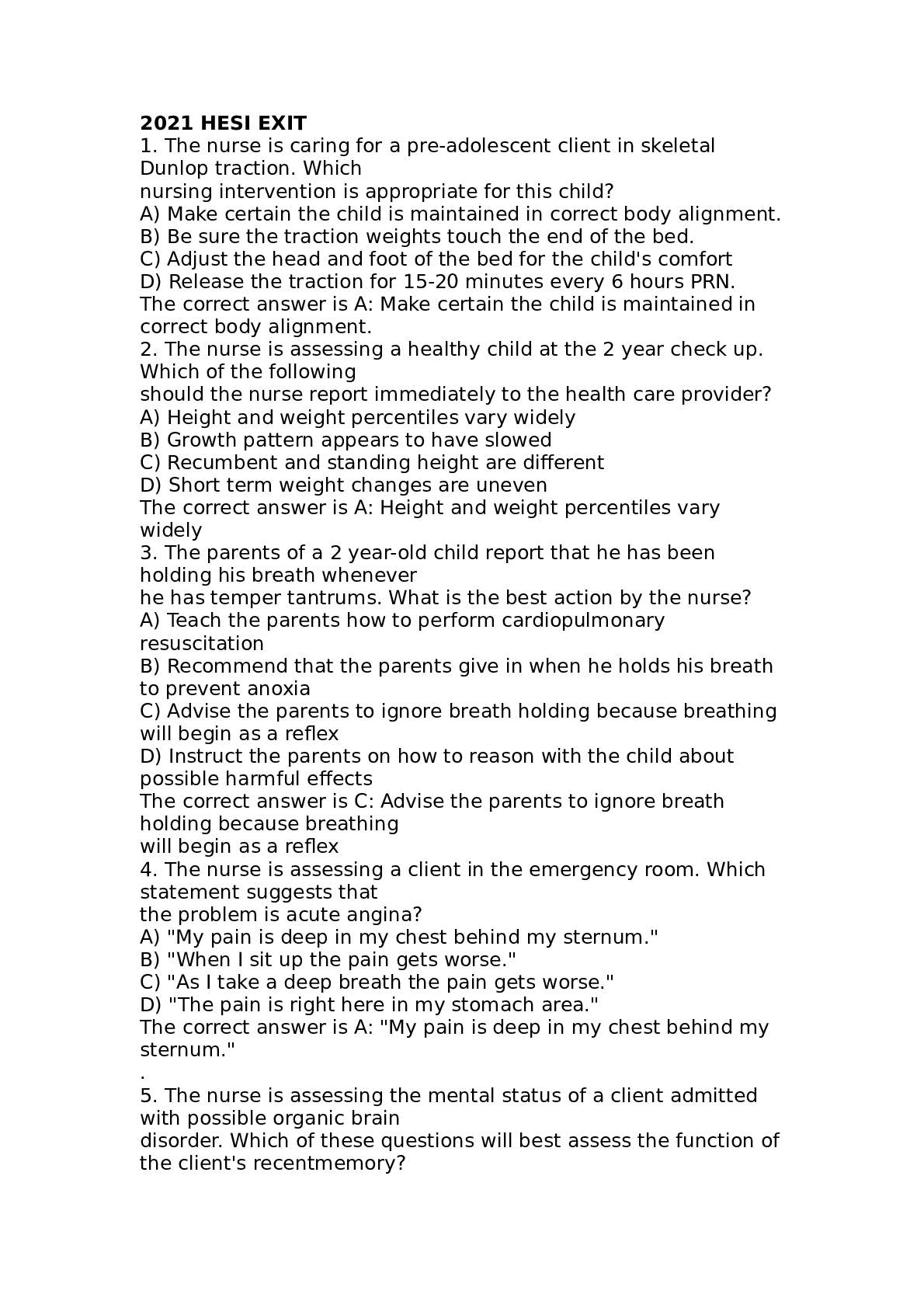
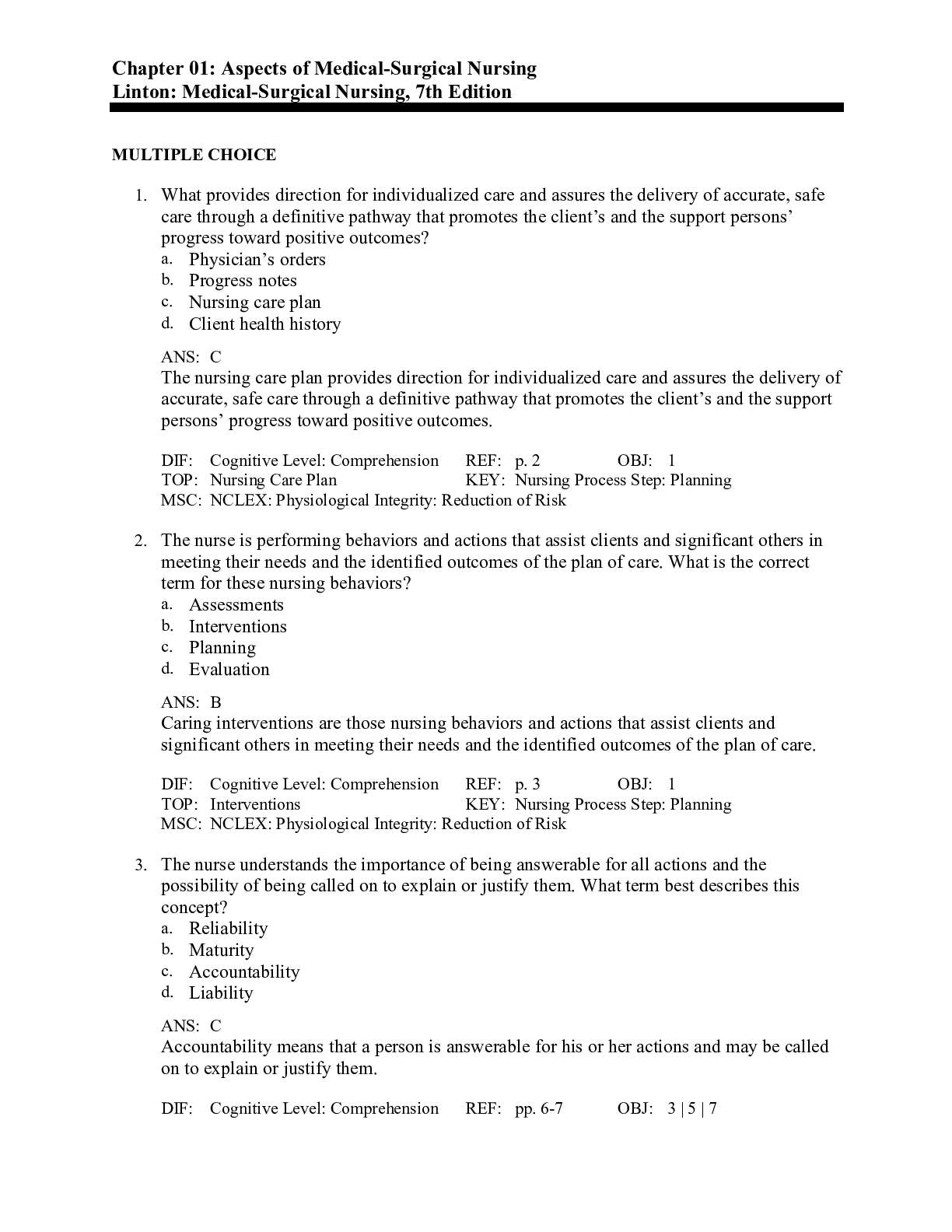

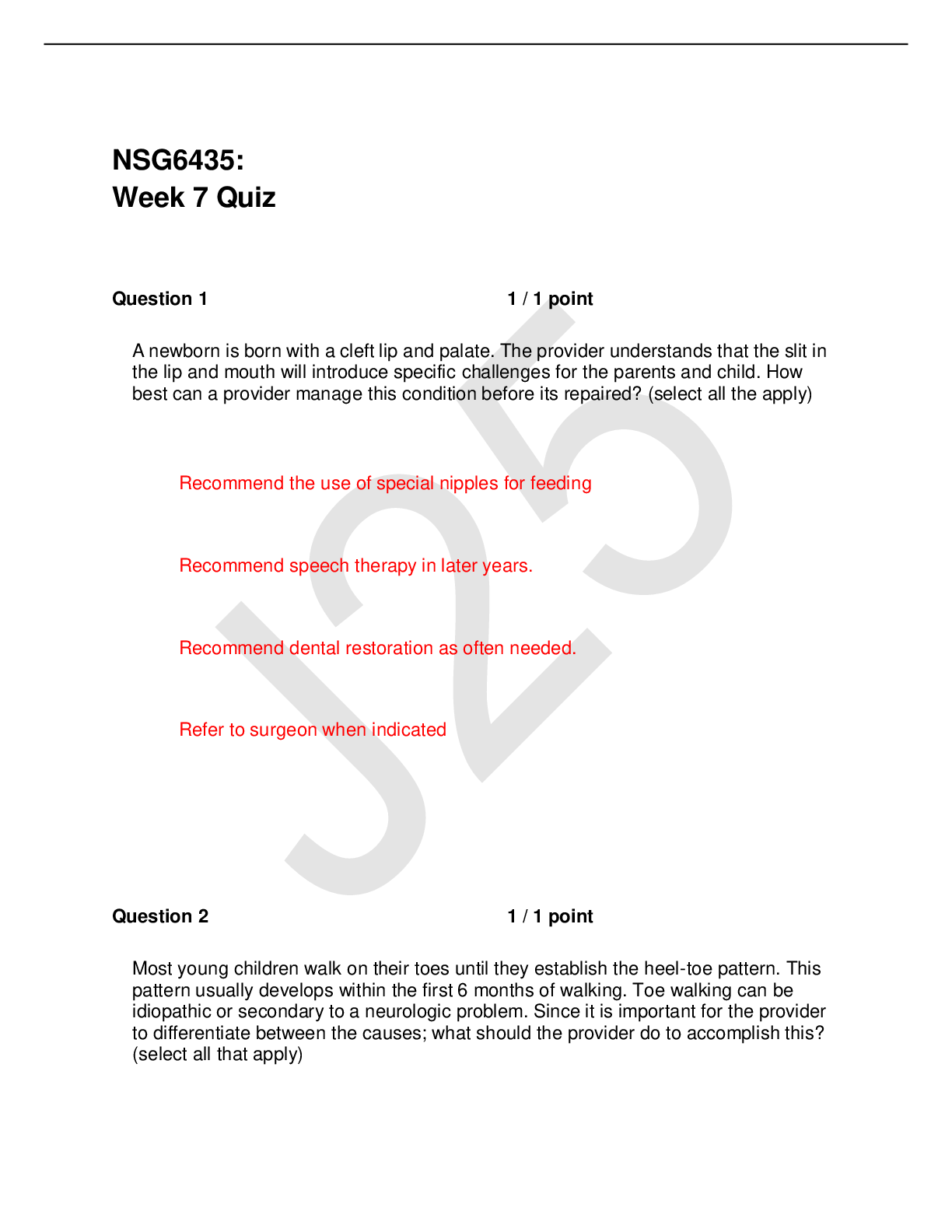
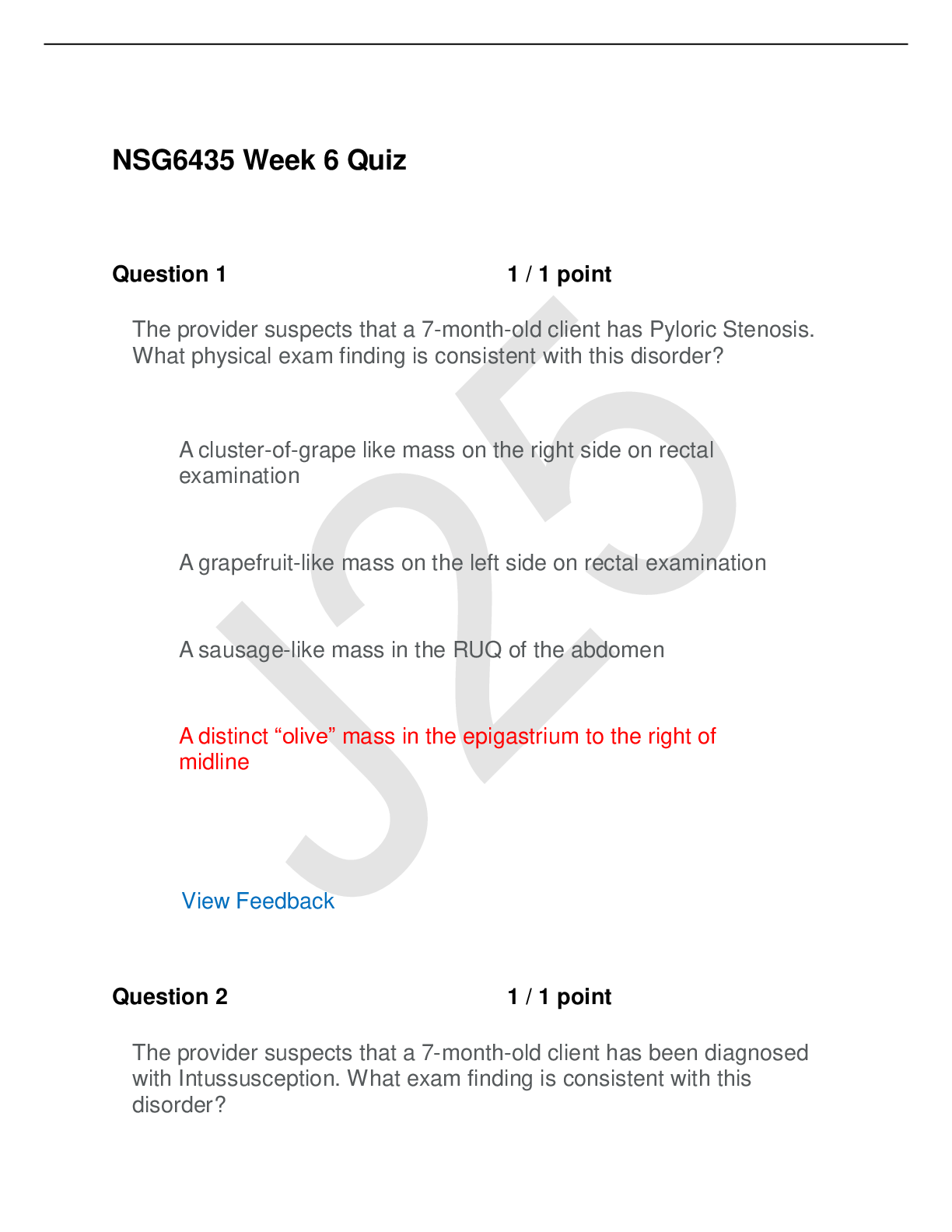
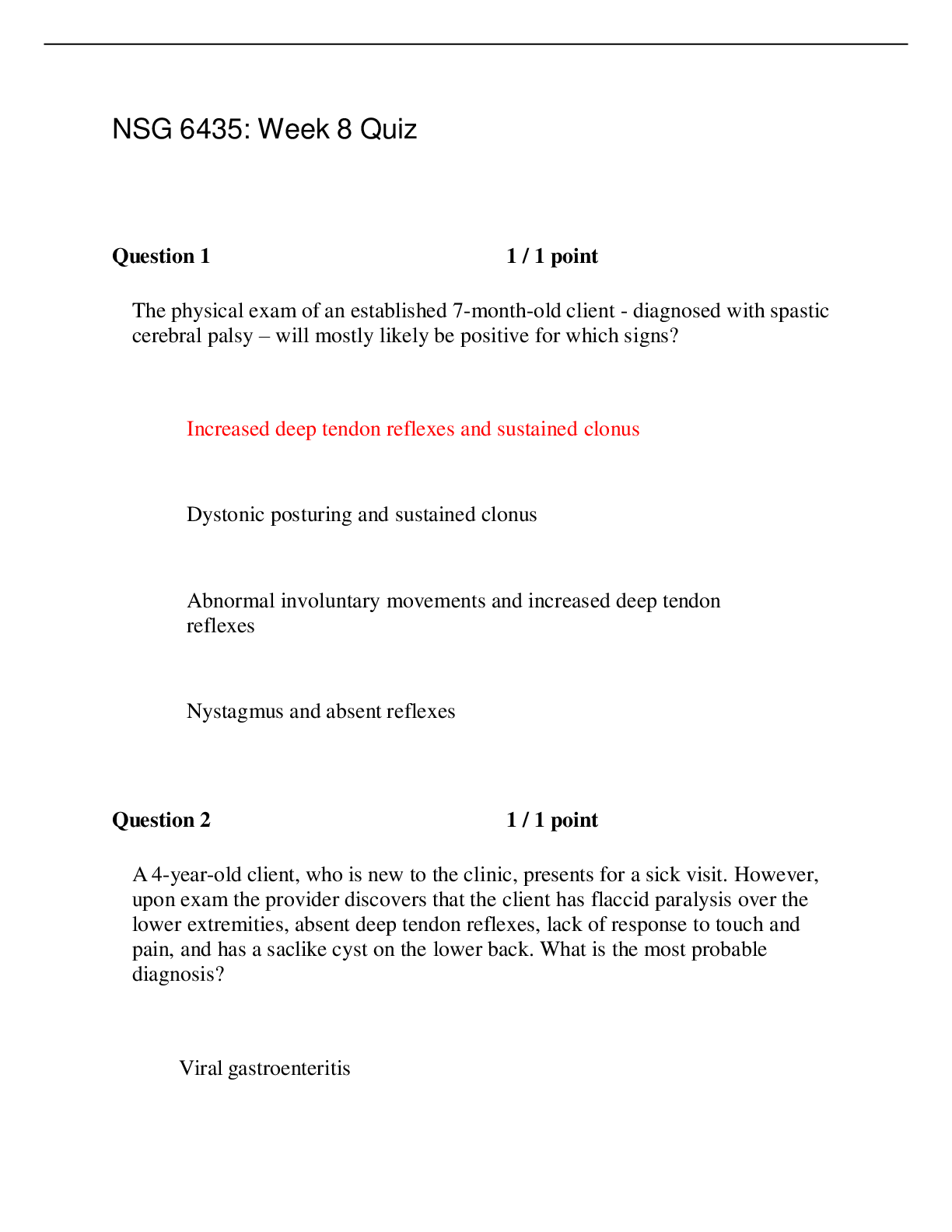
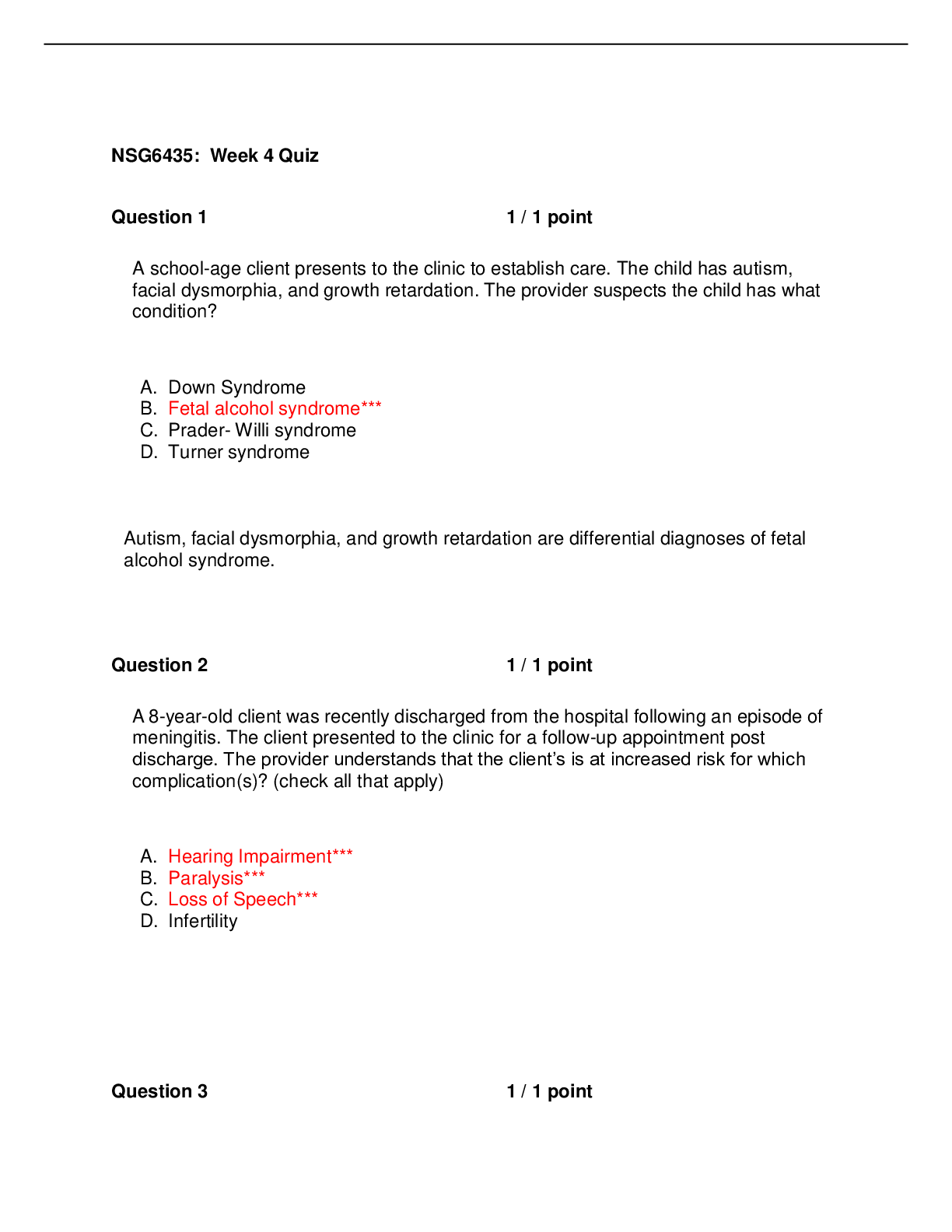
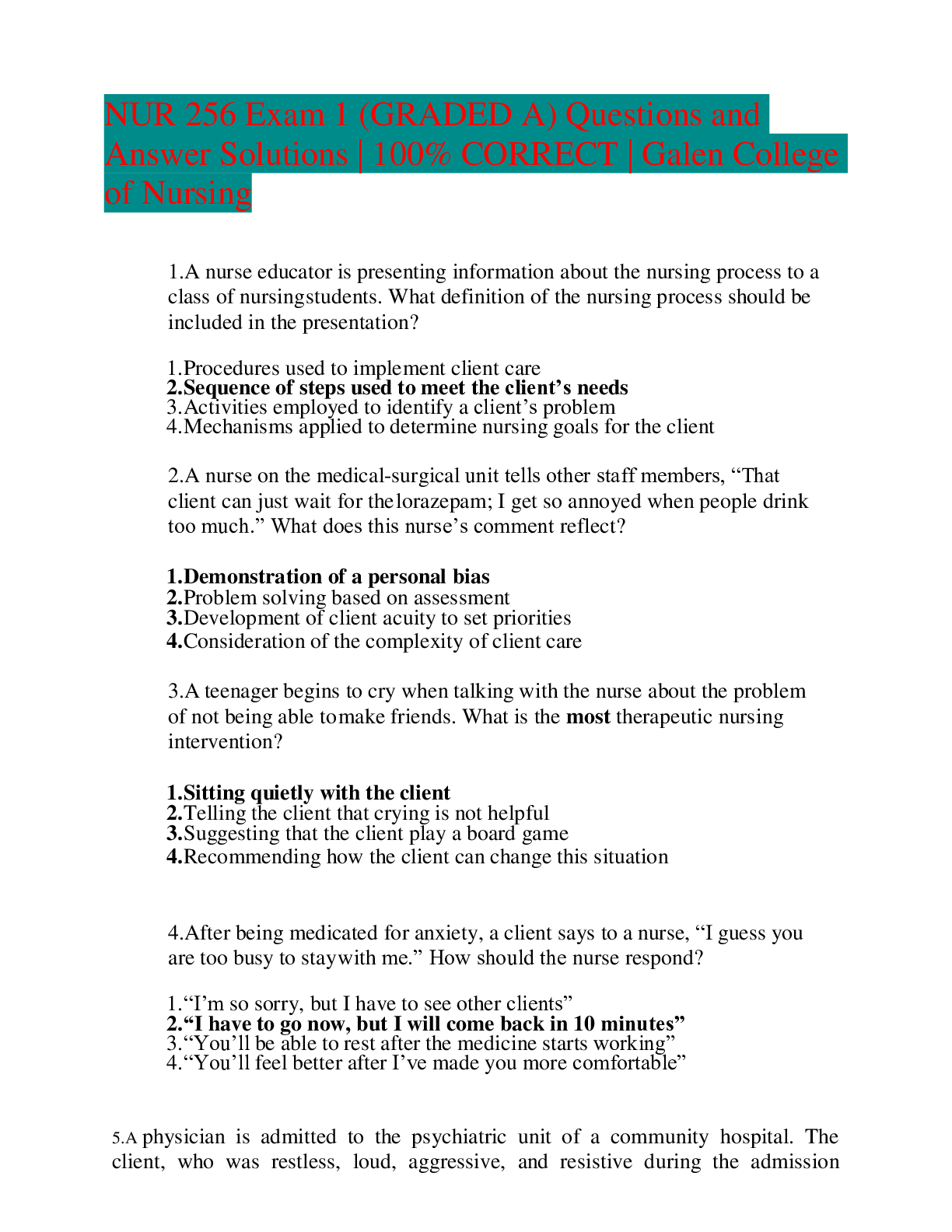
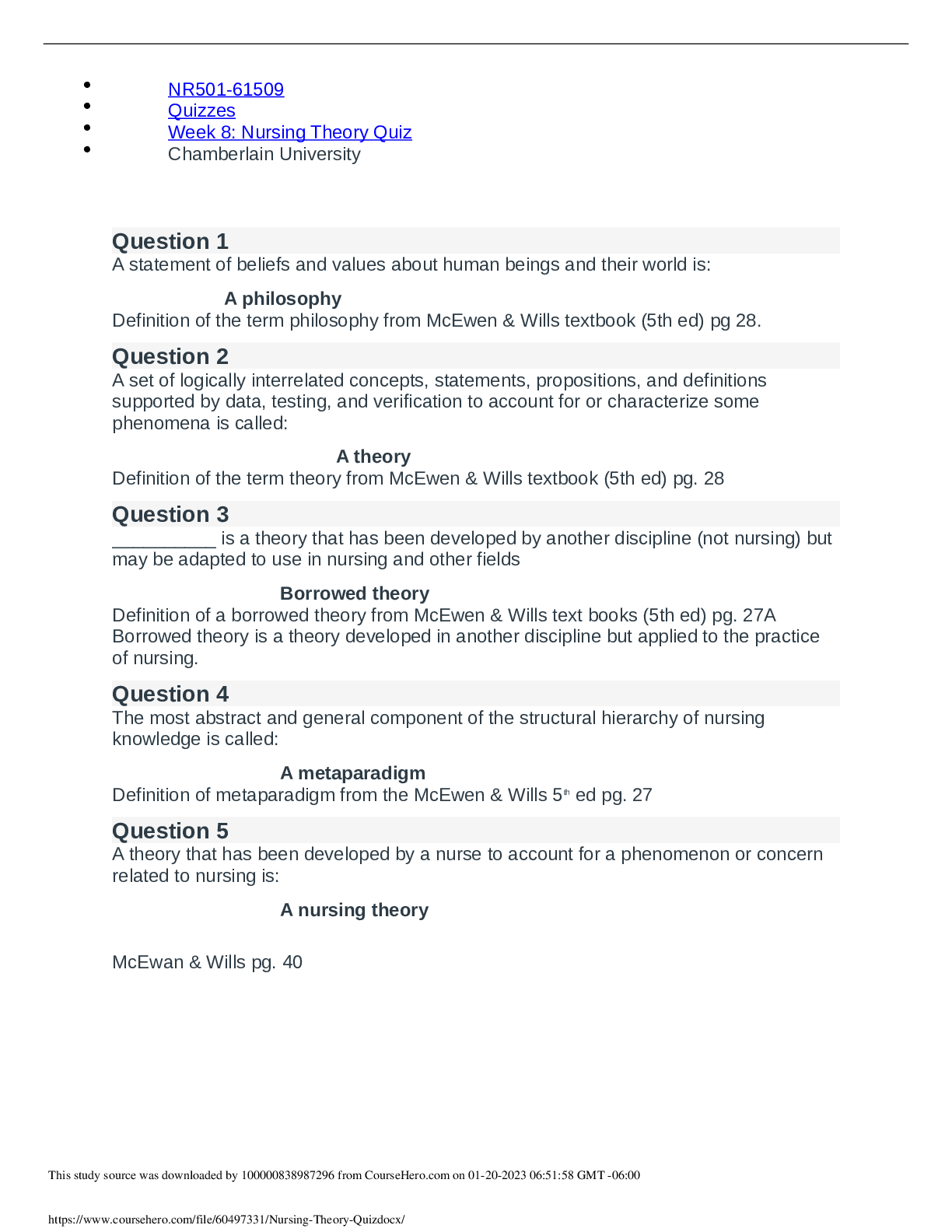
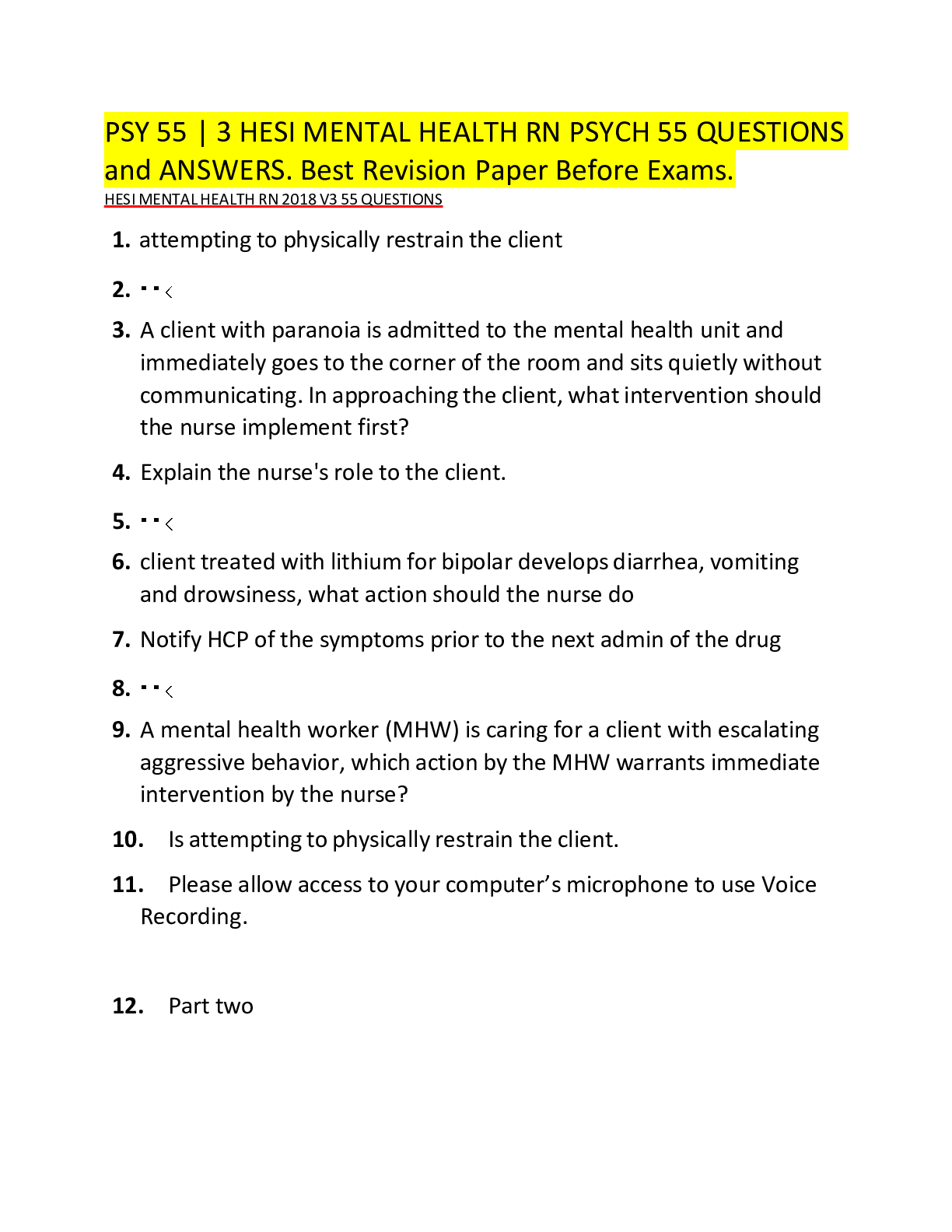
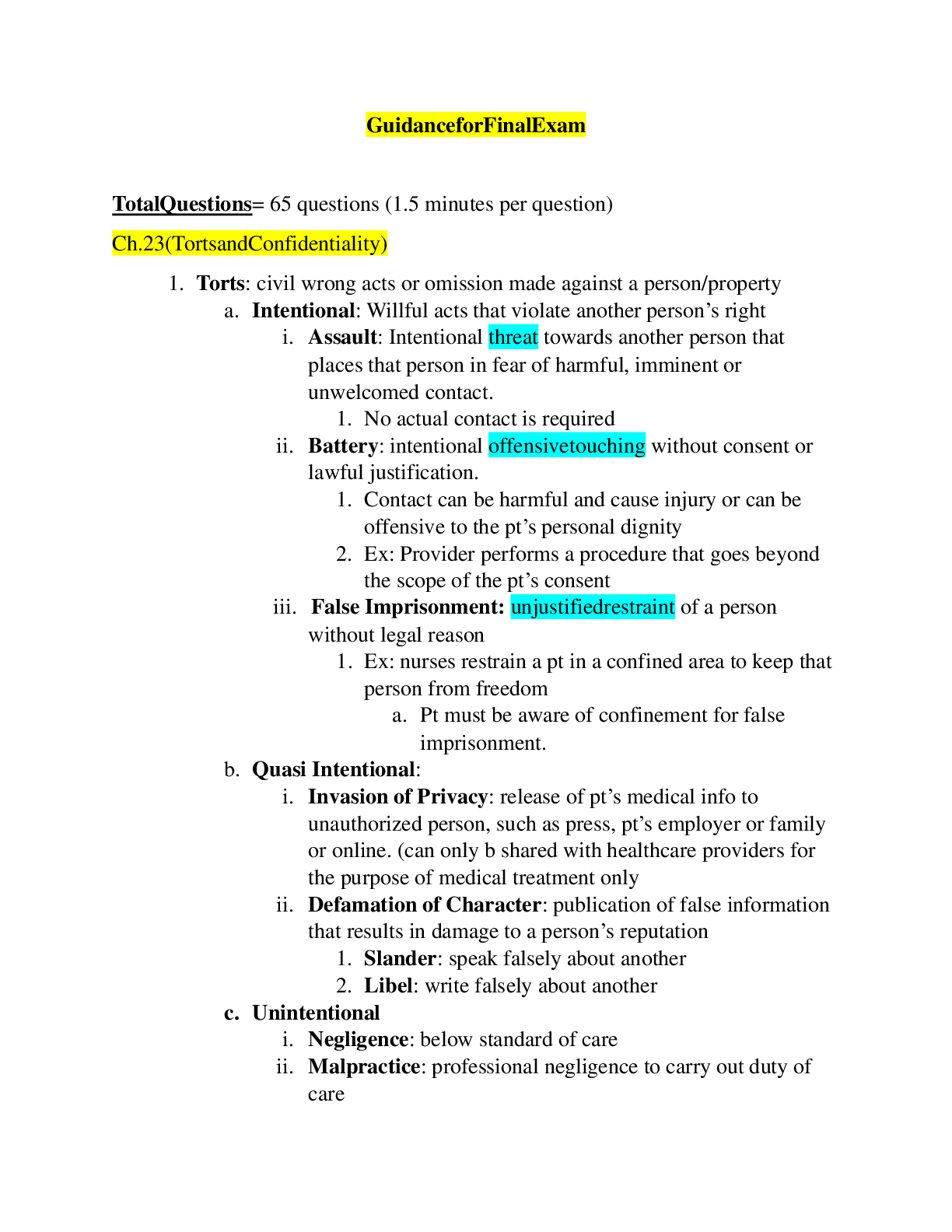
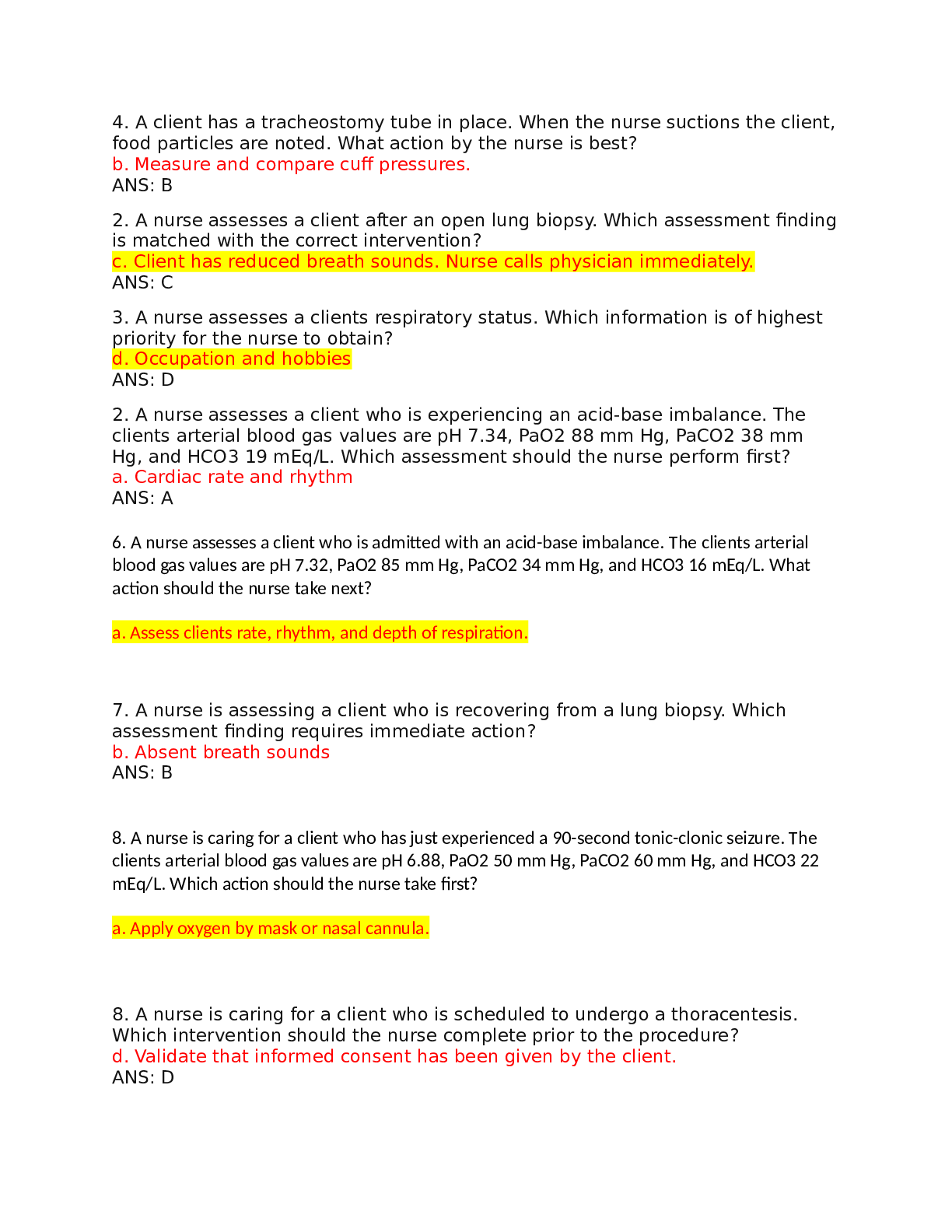

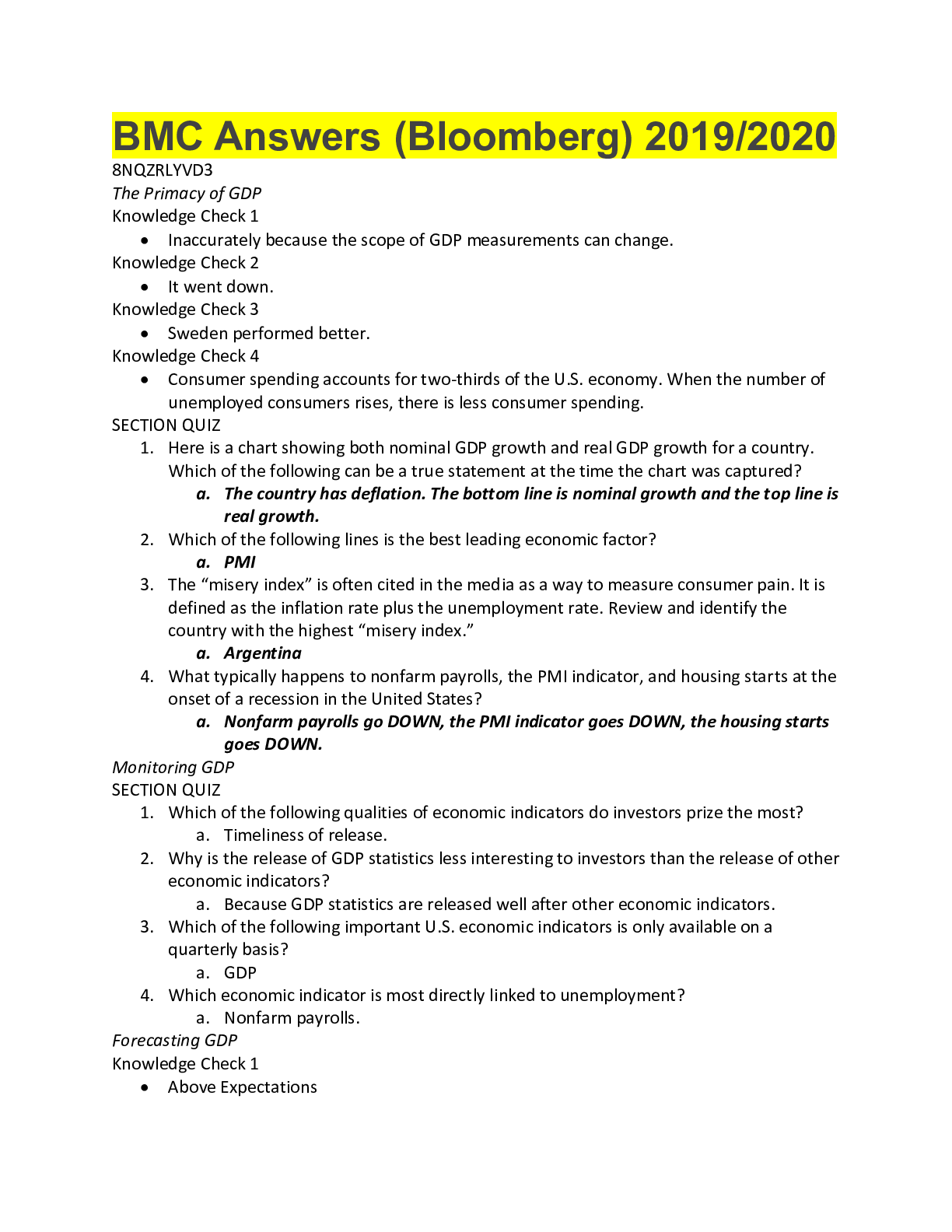
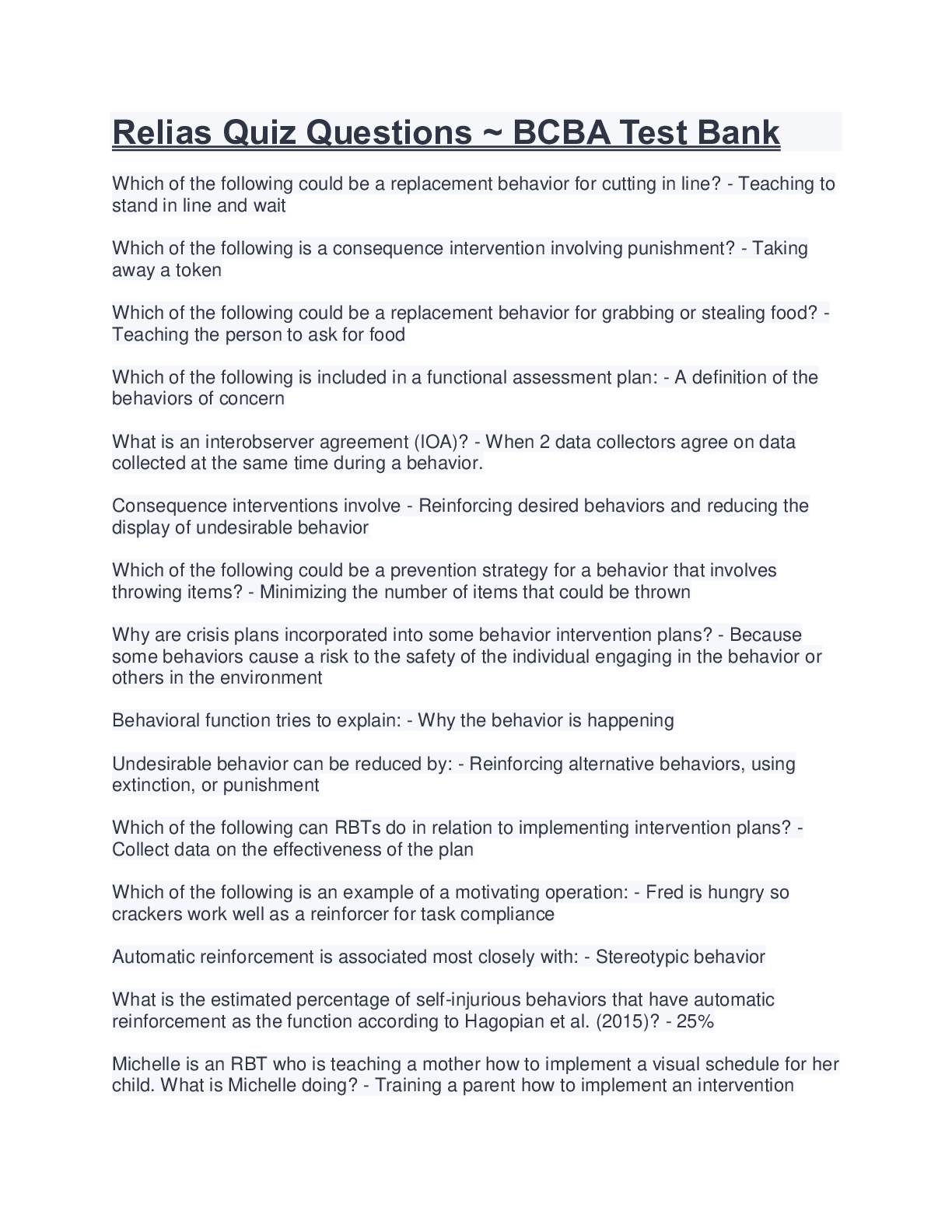
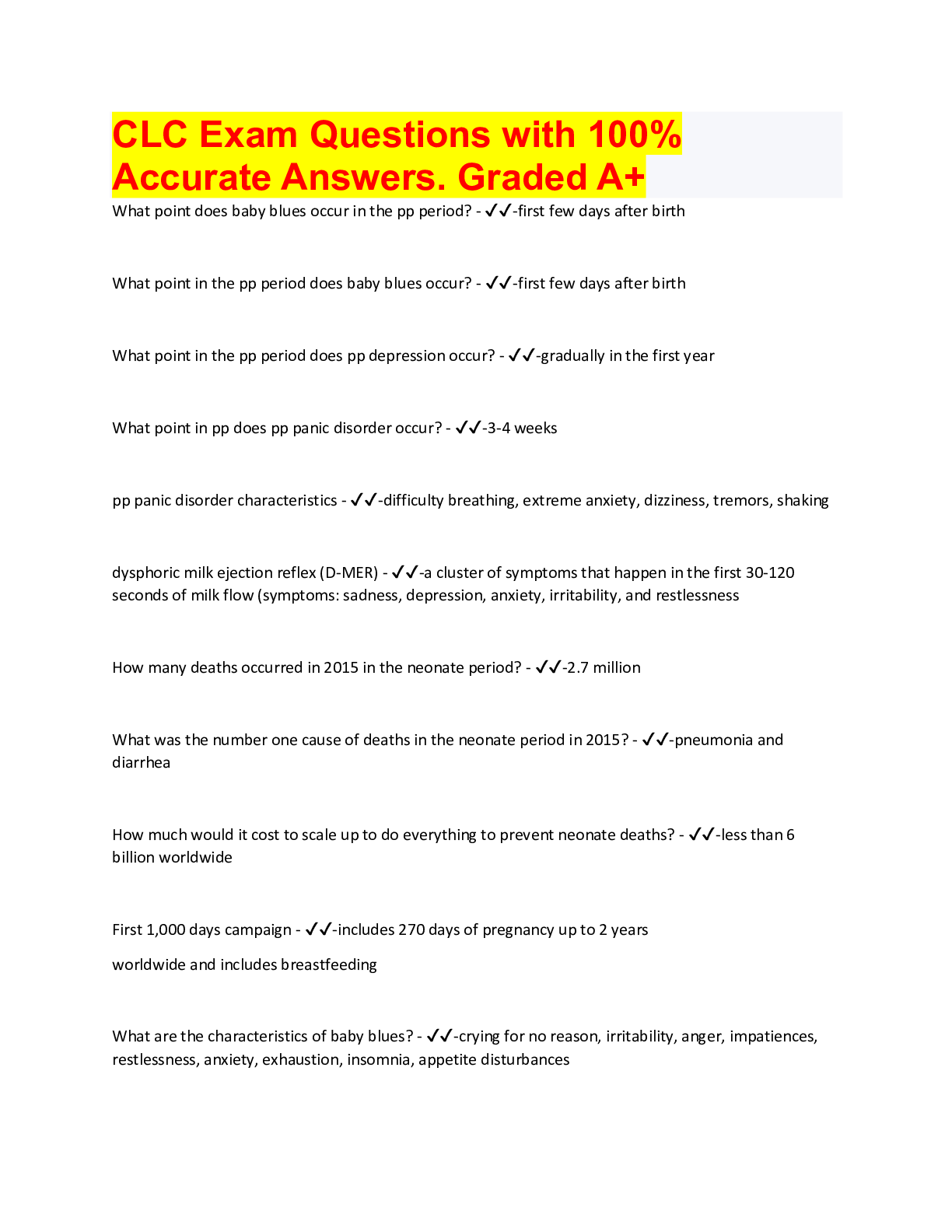
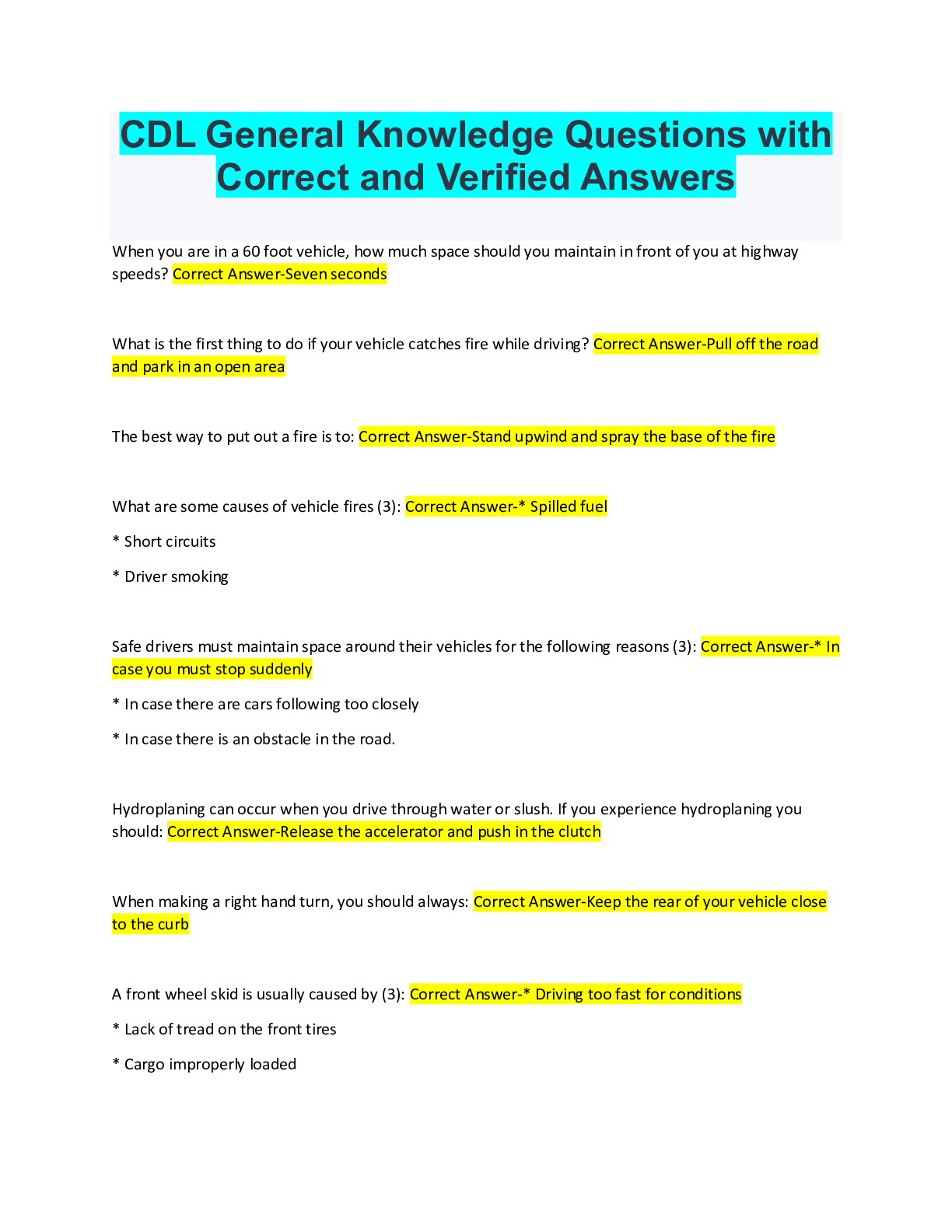
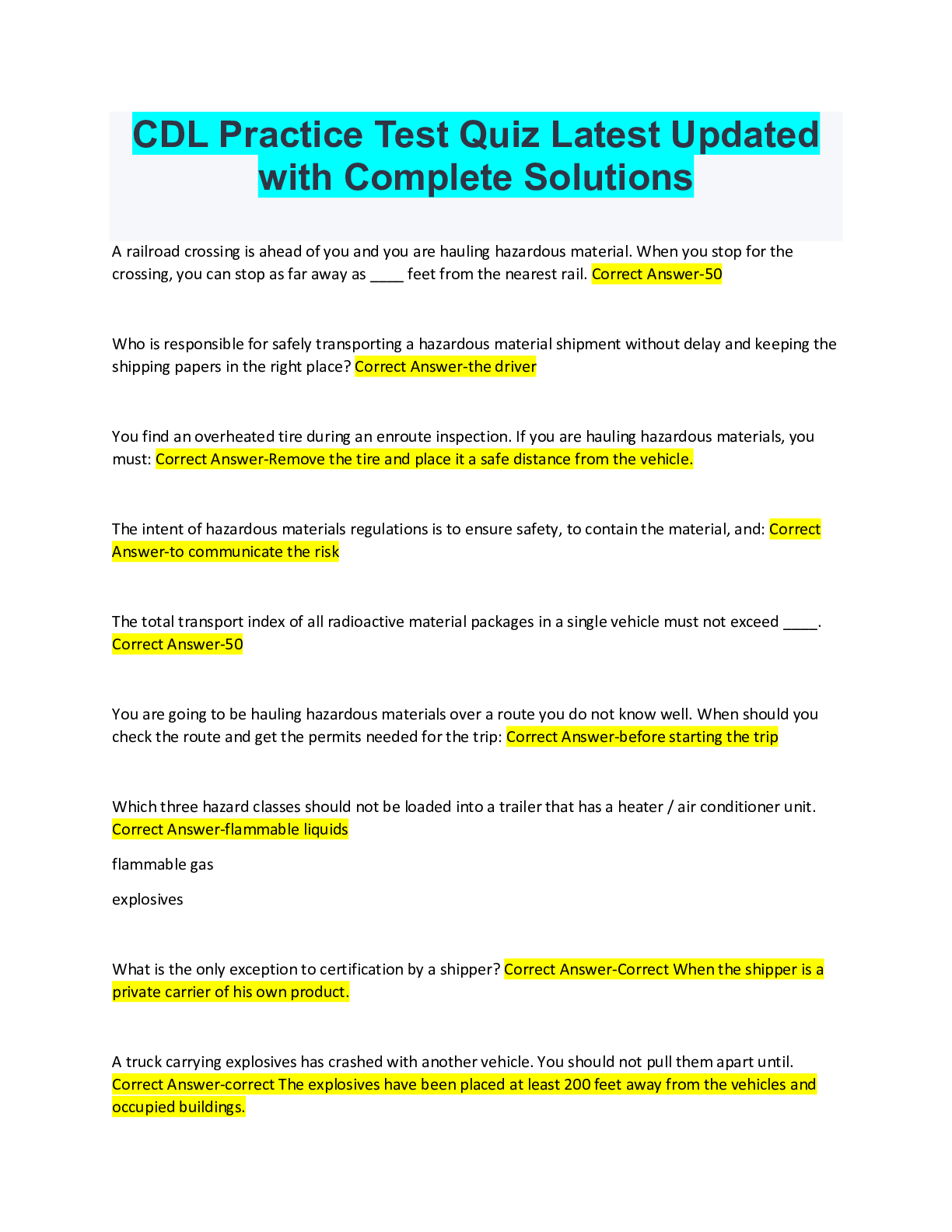
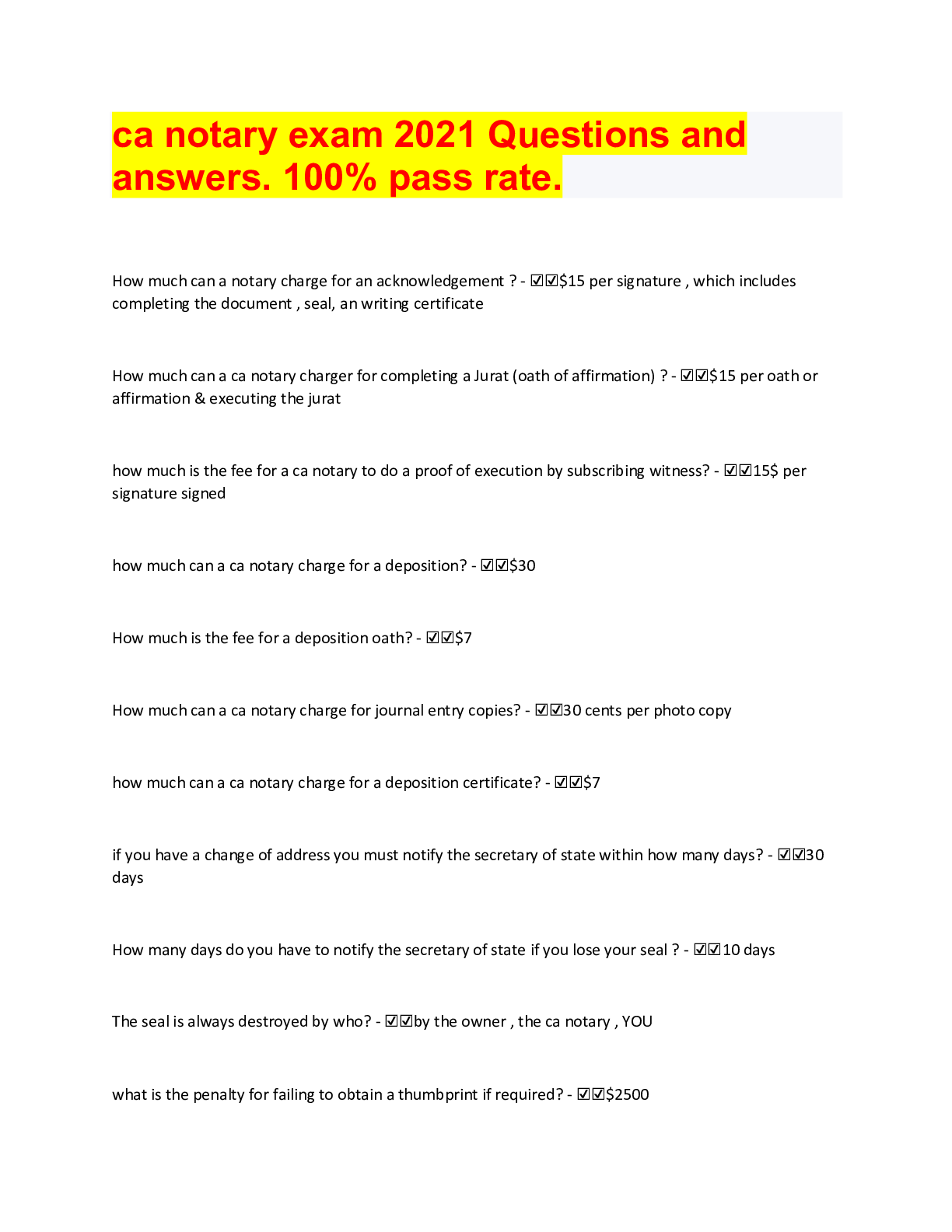
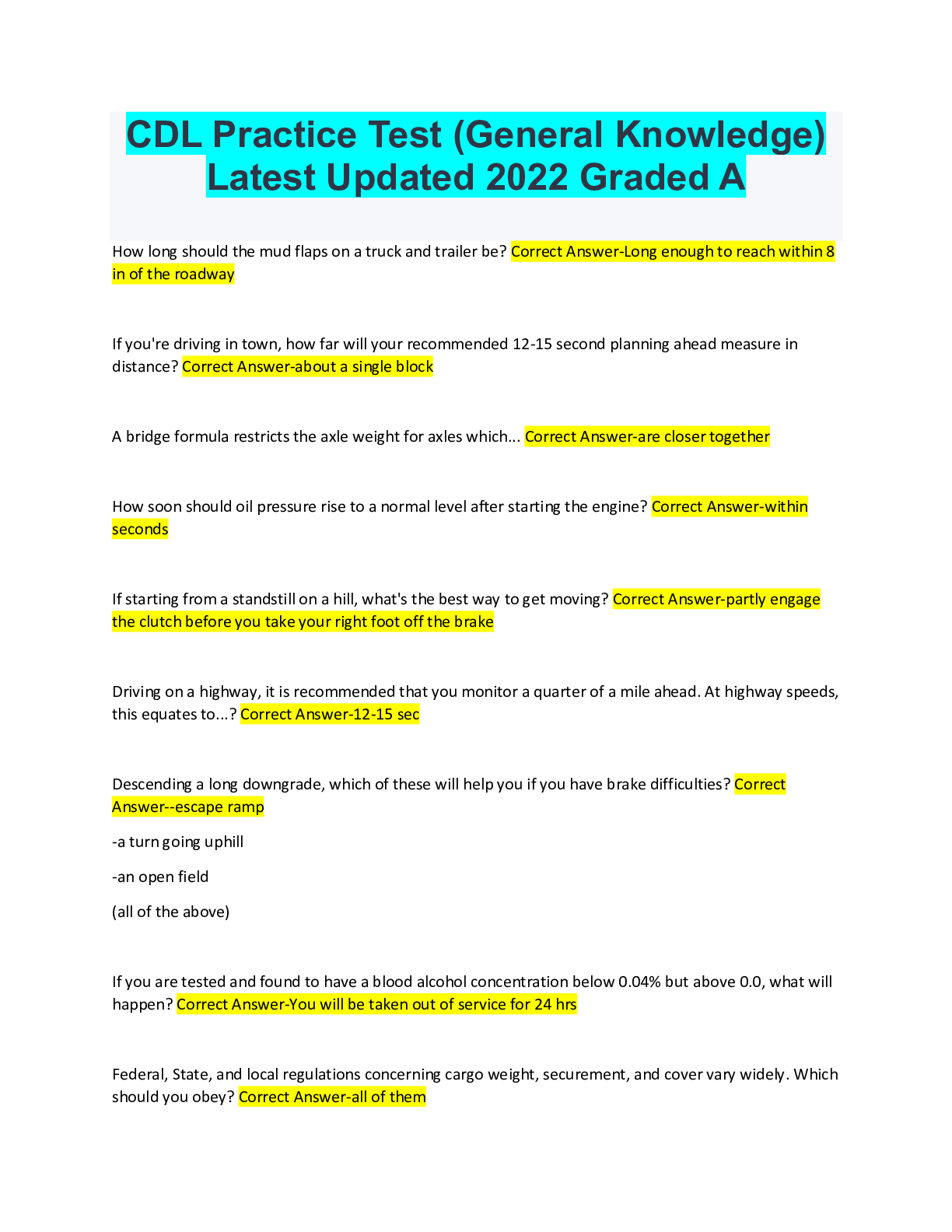
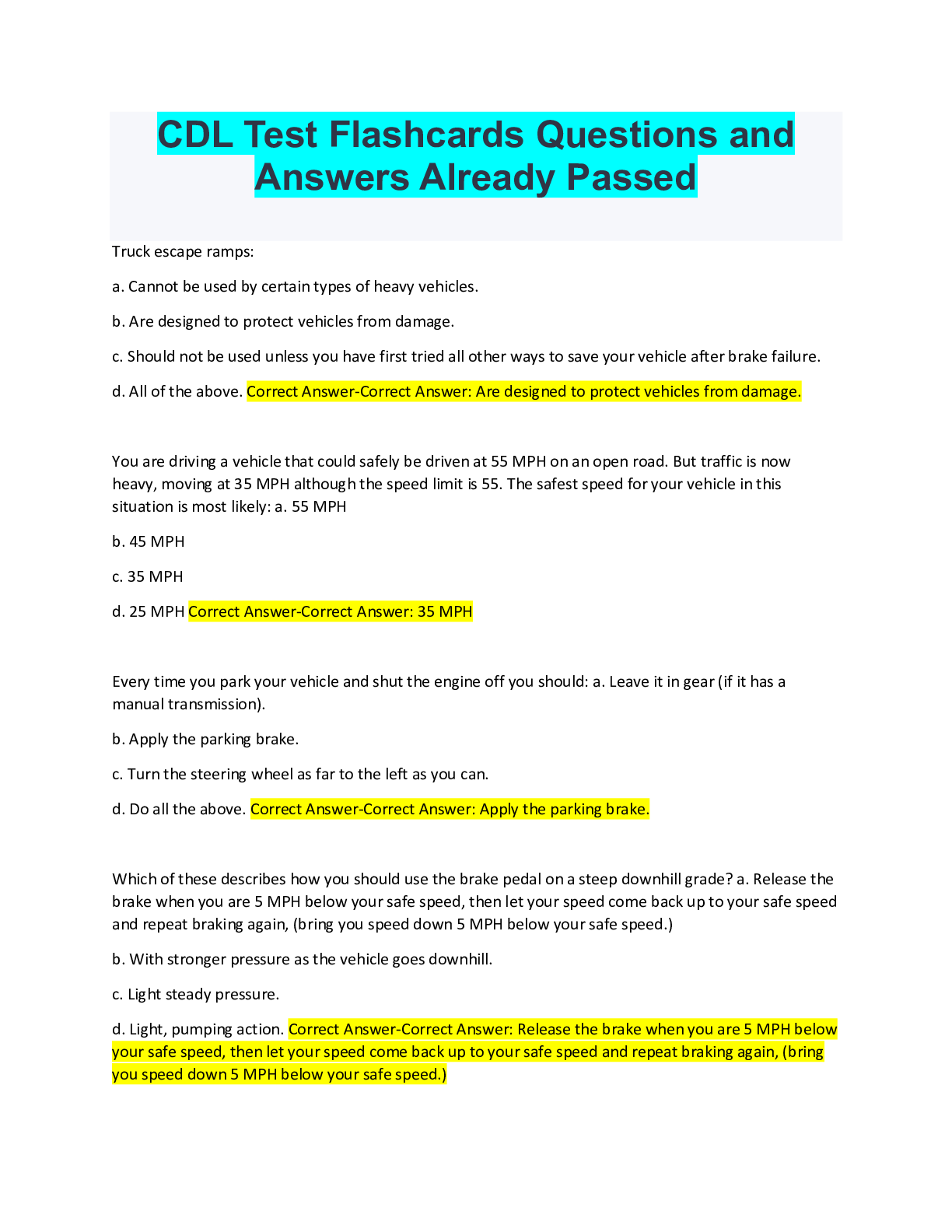
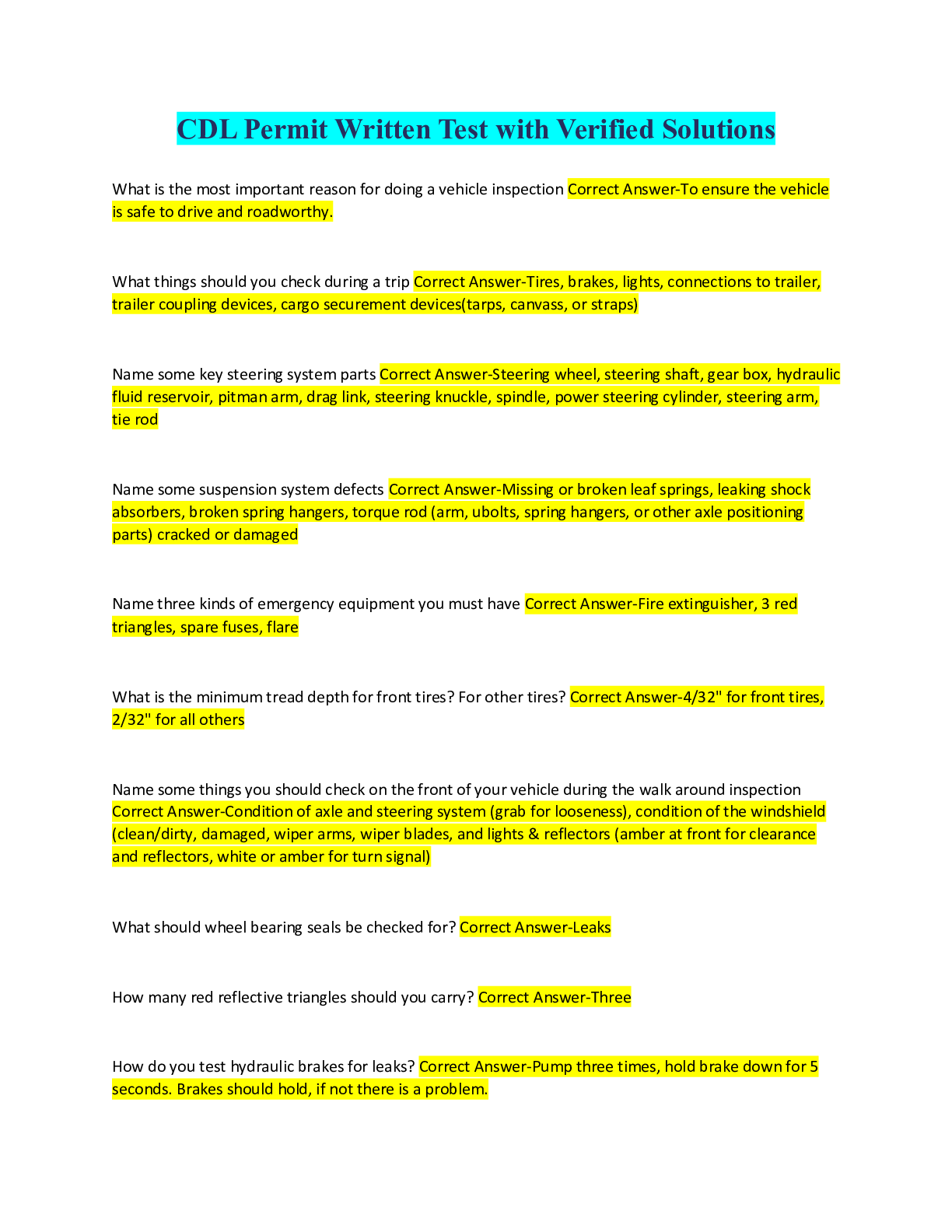
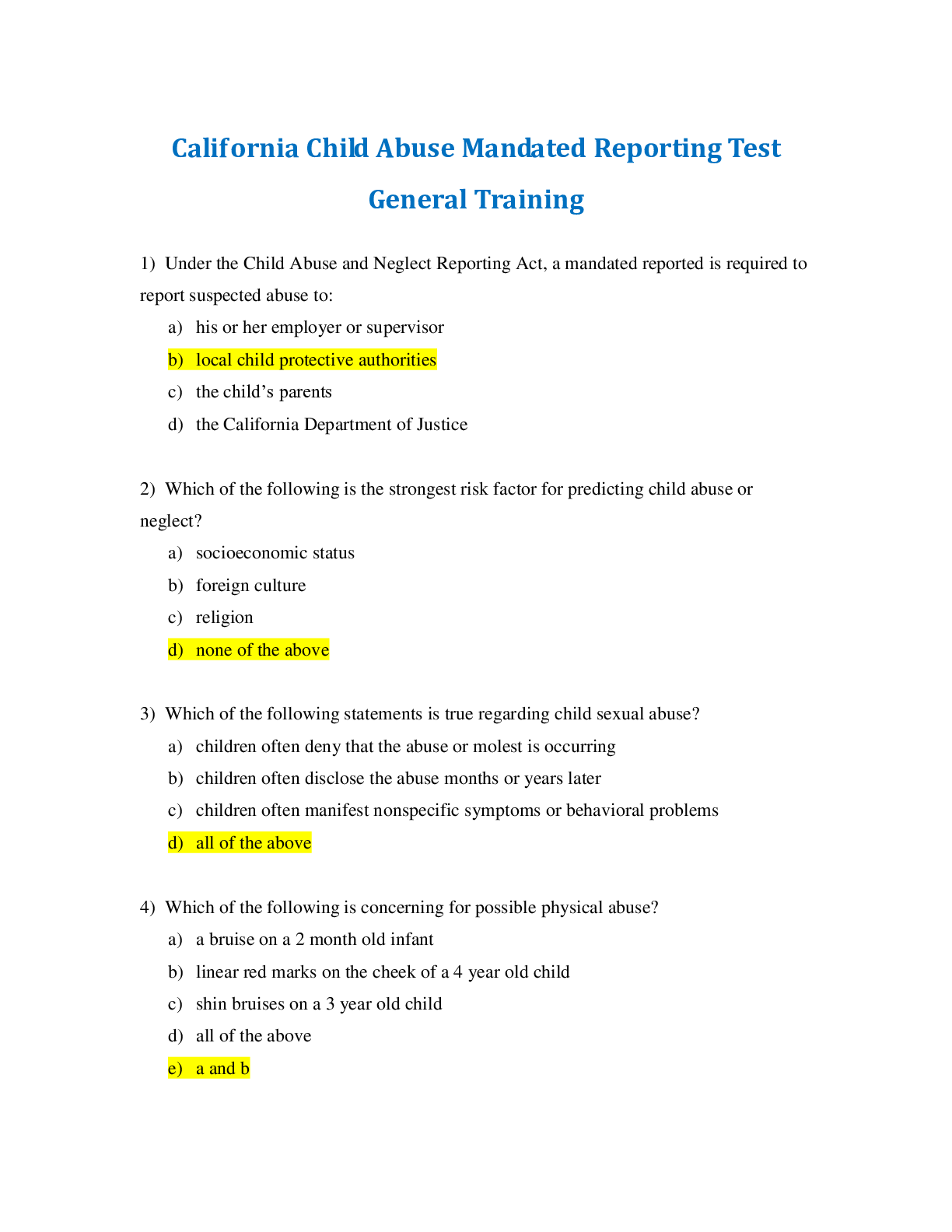
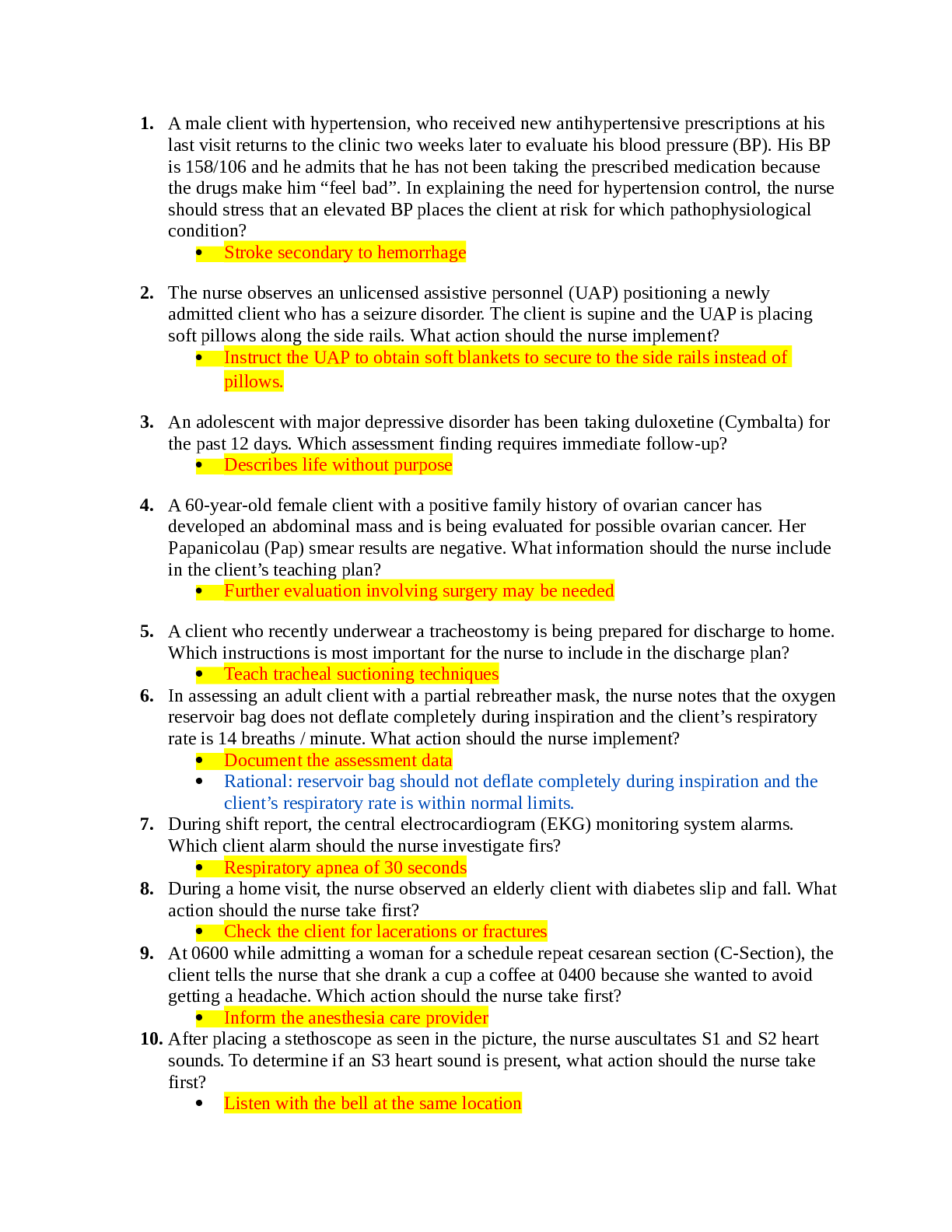
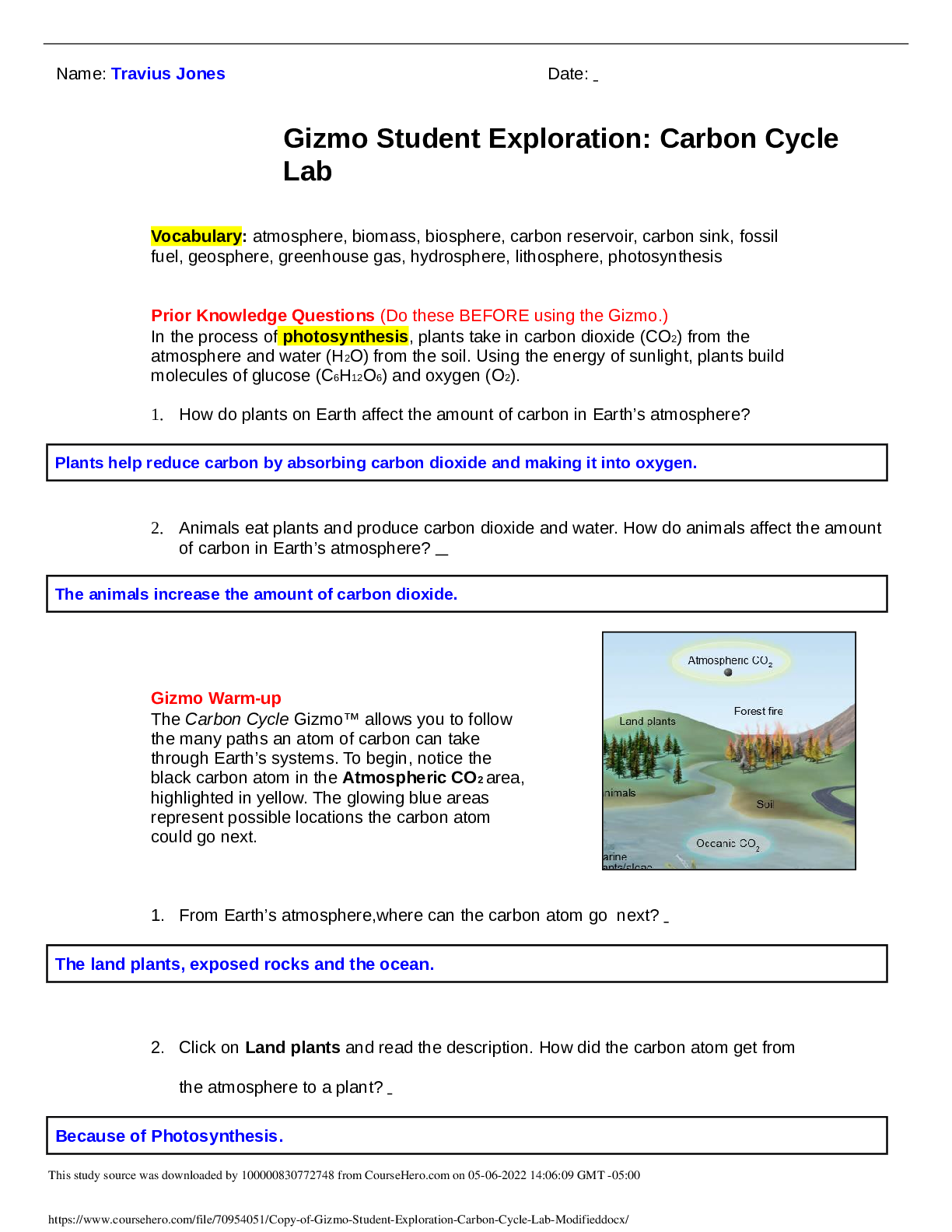
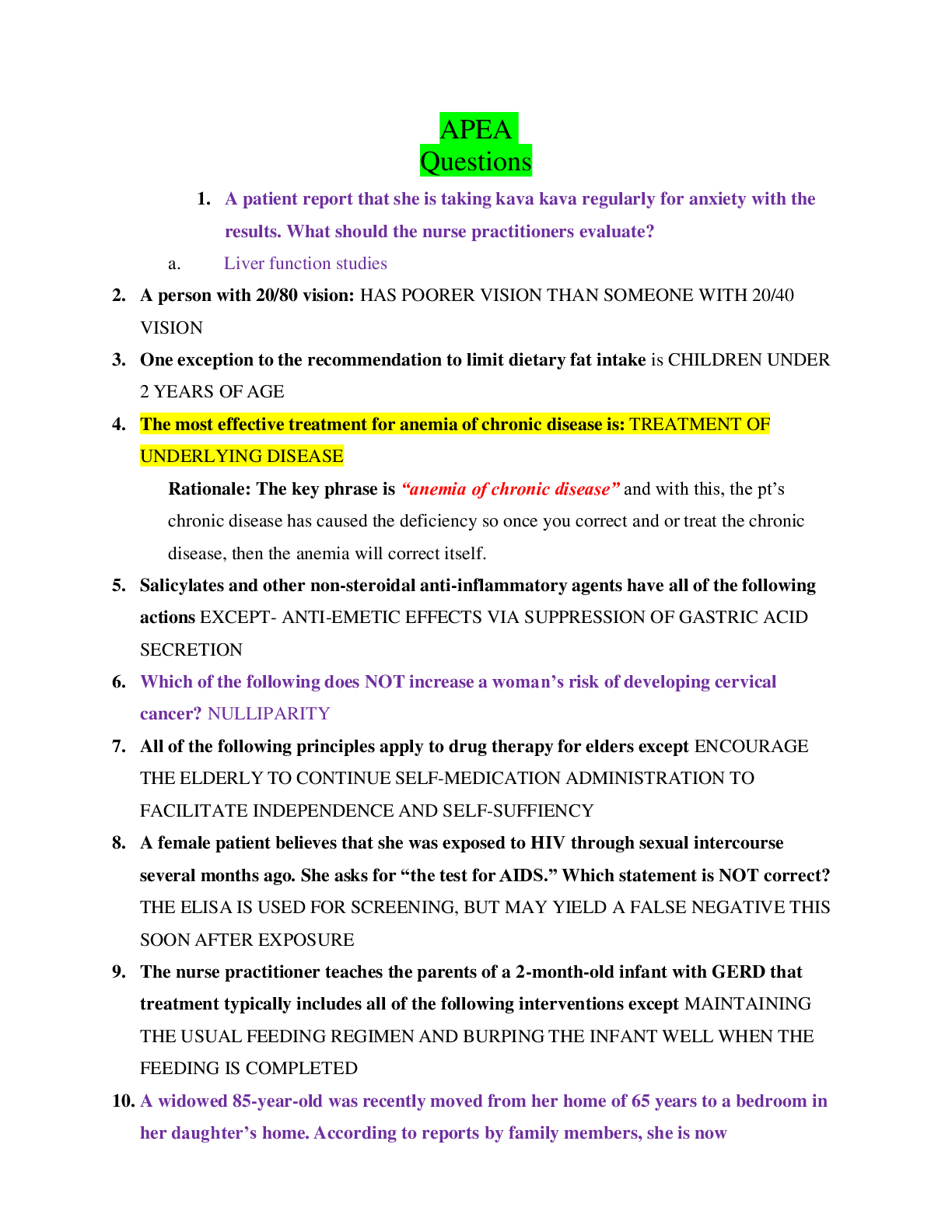
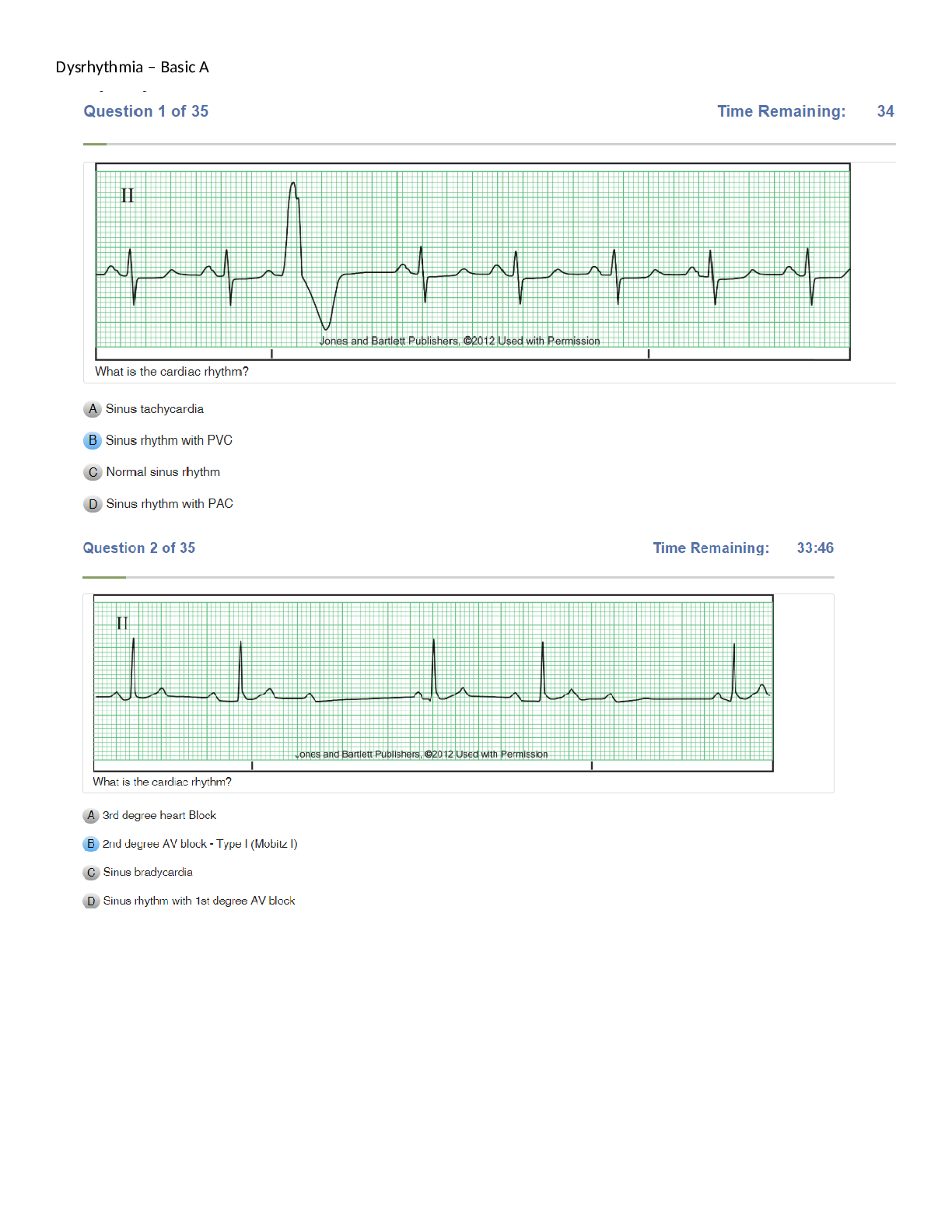
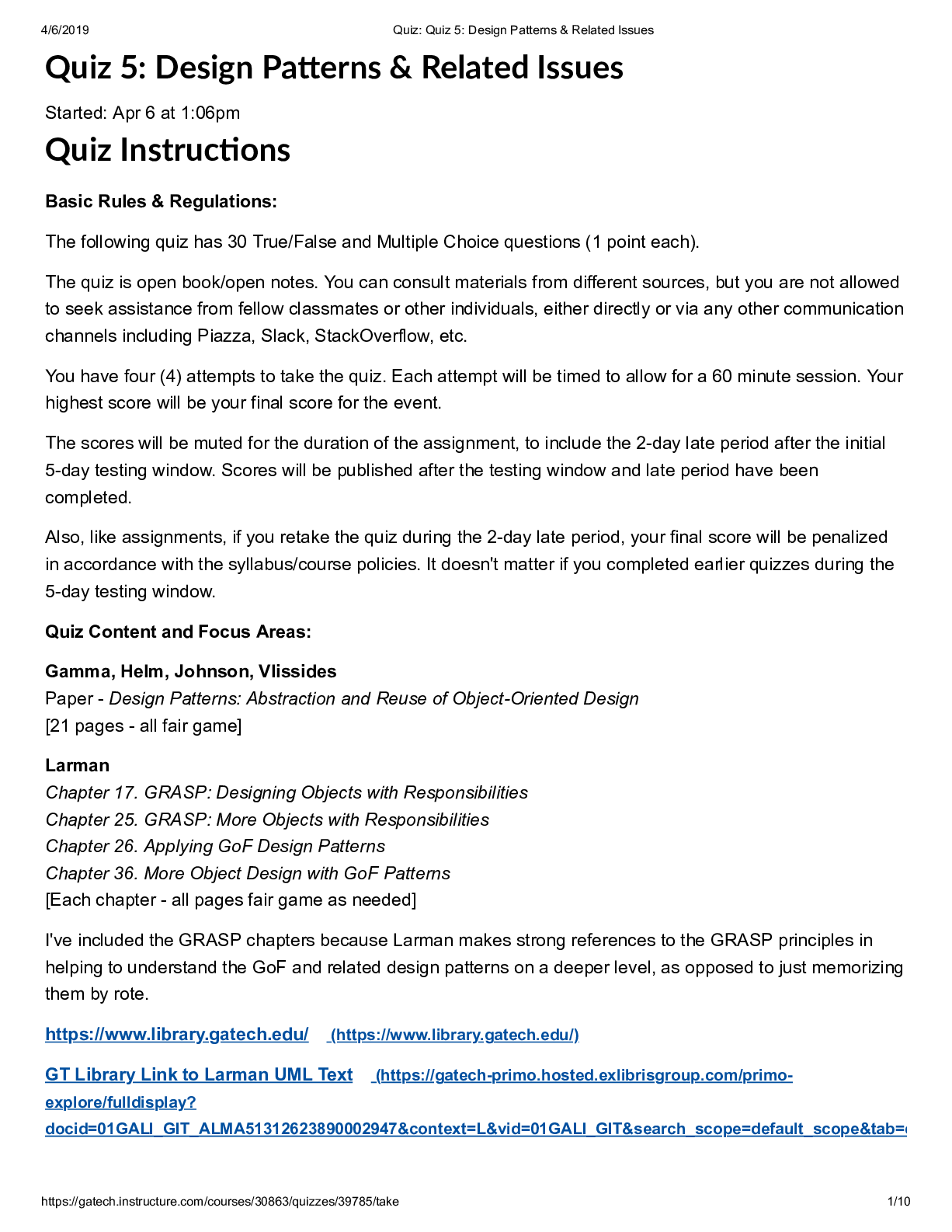
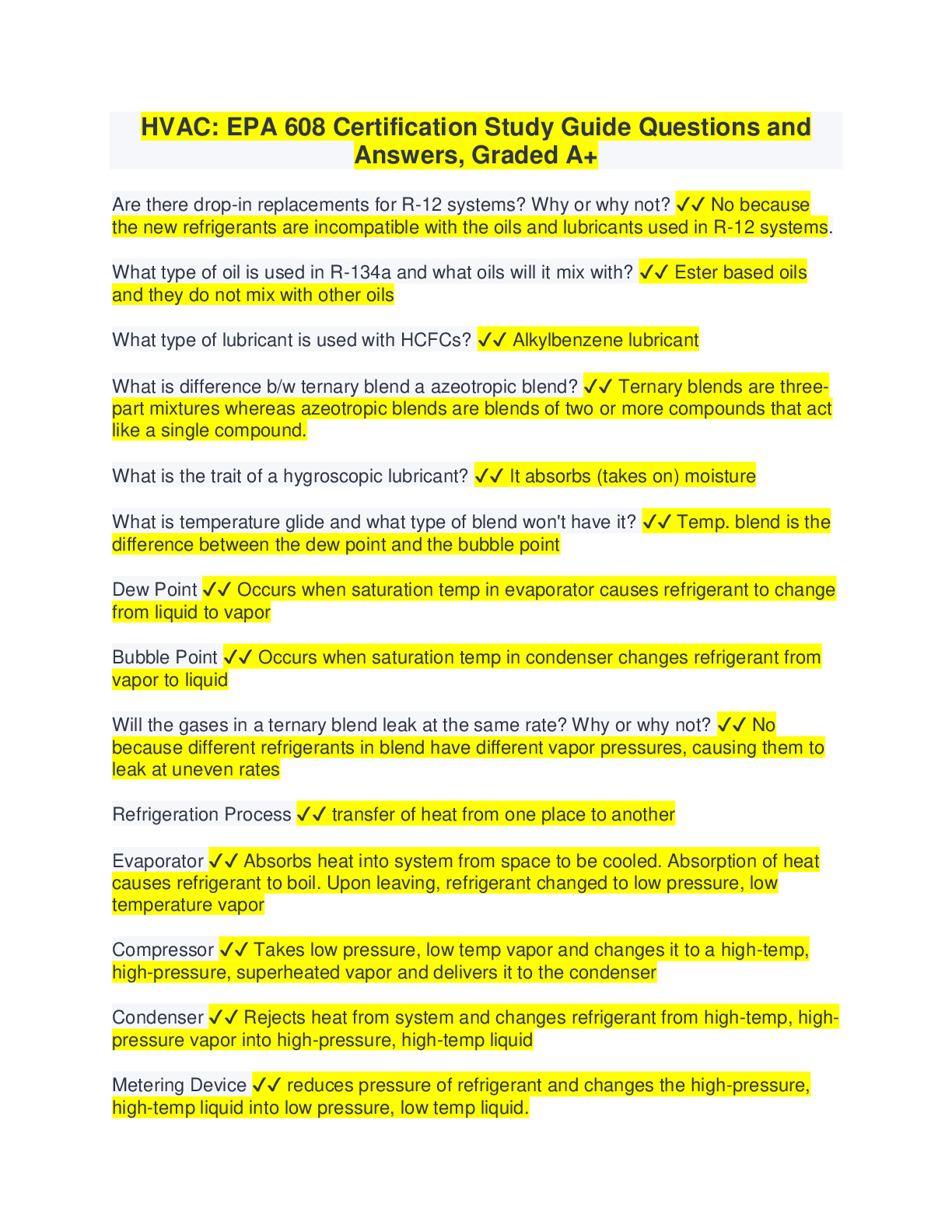
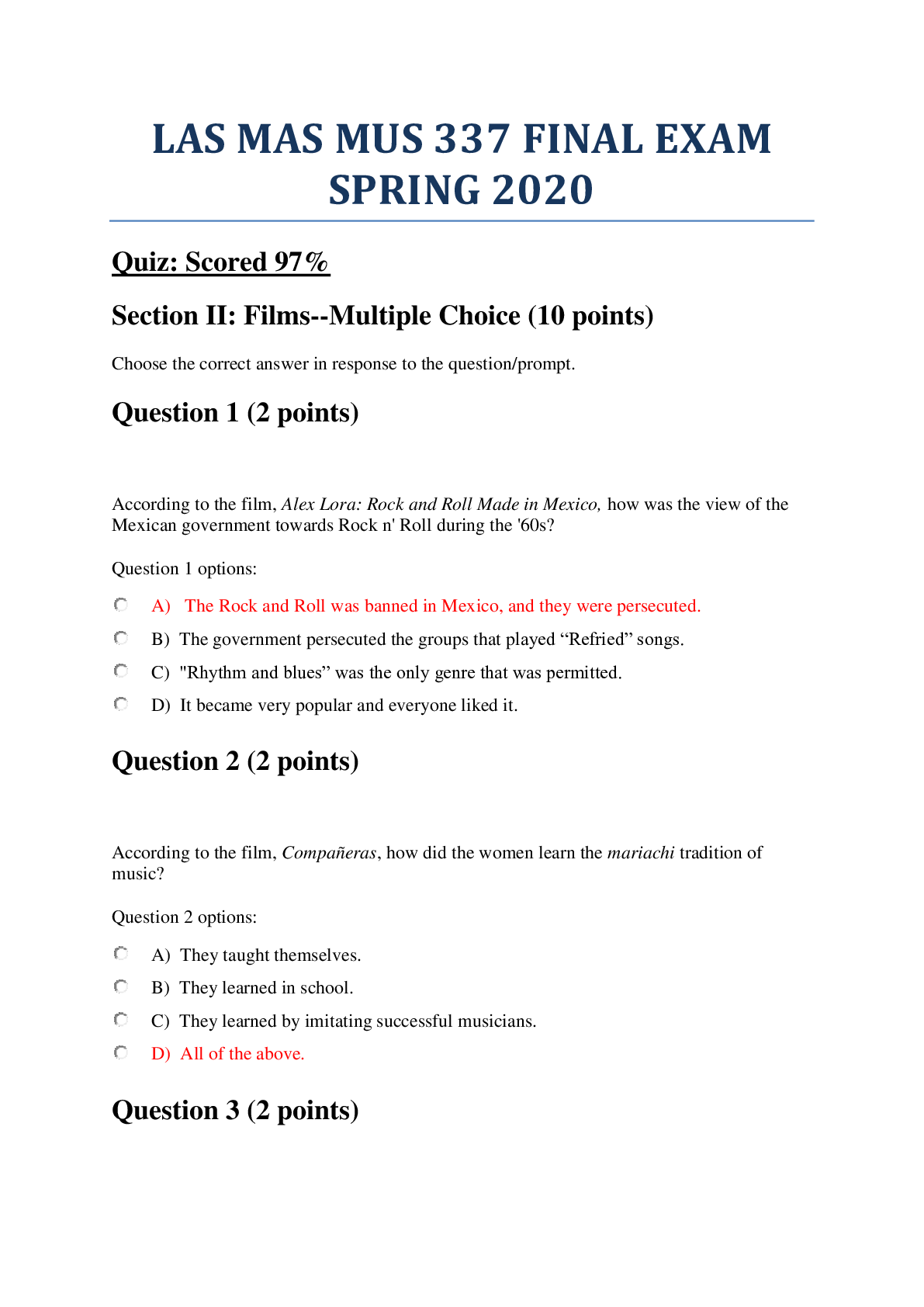
.png)
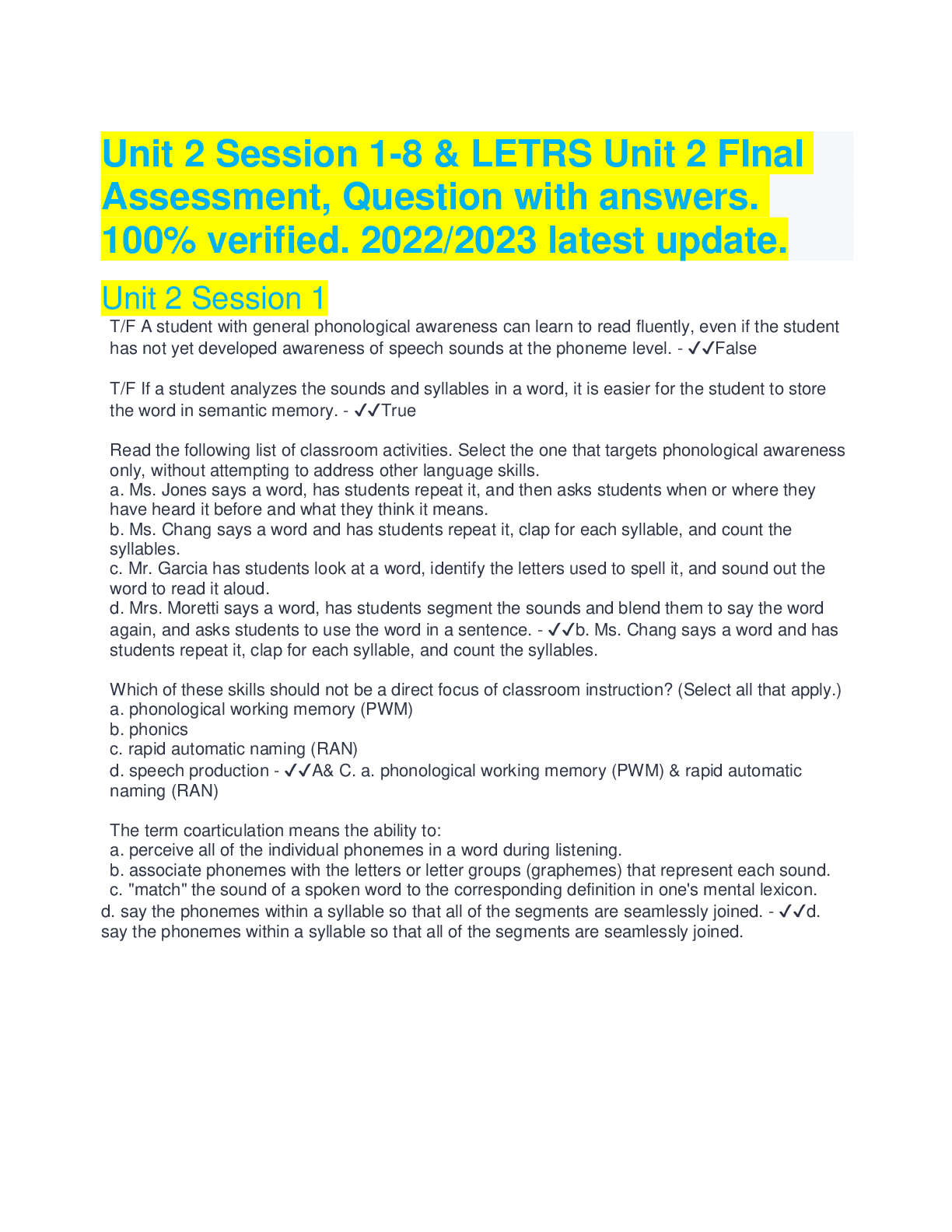
.png)

